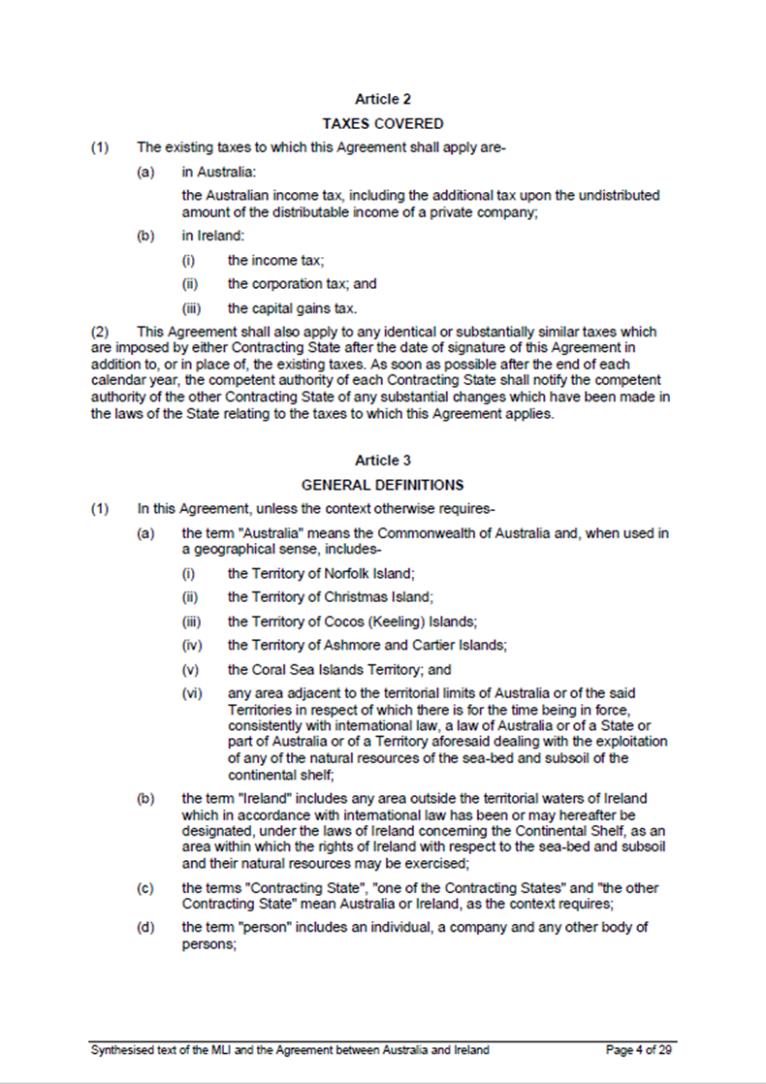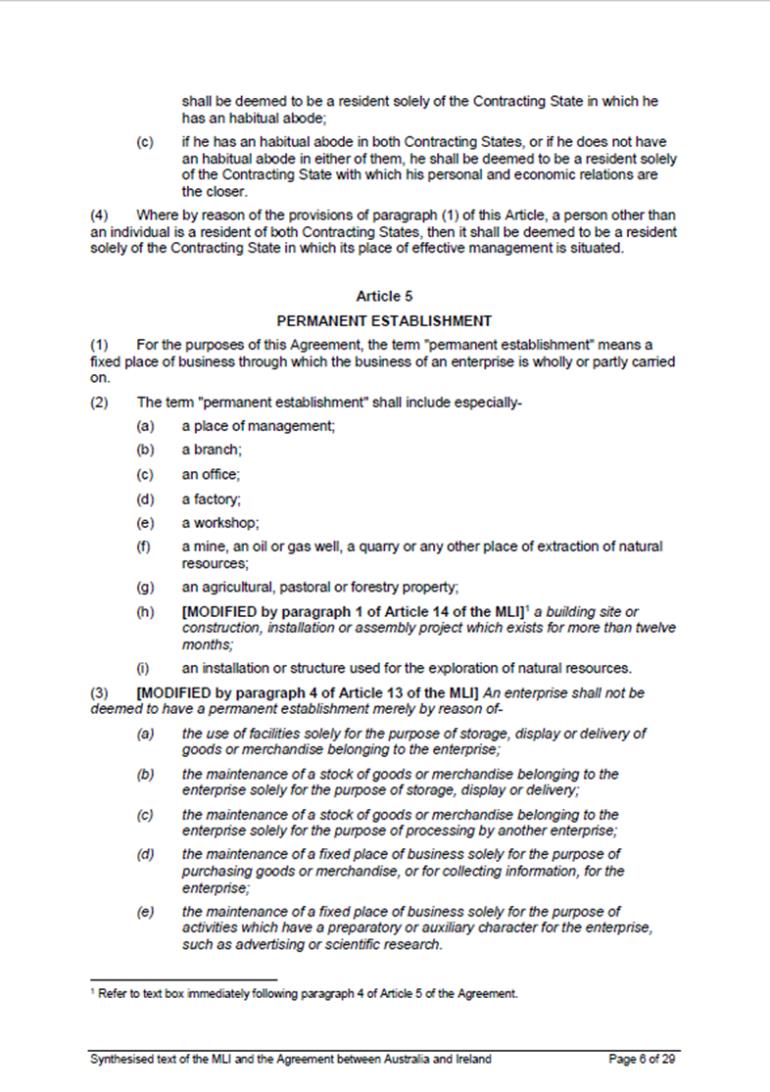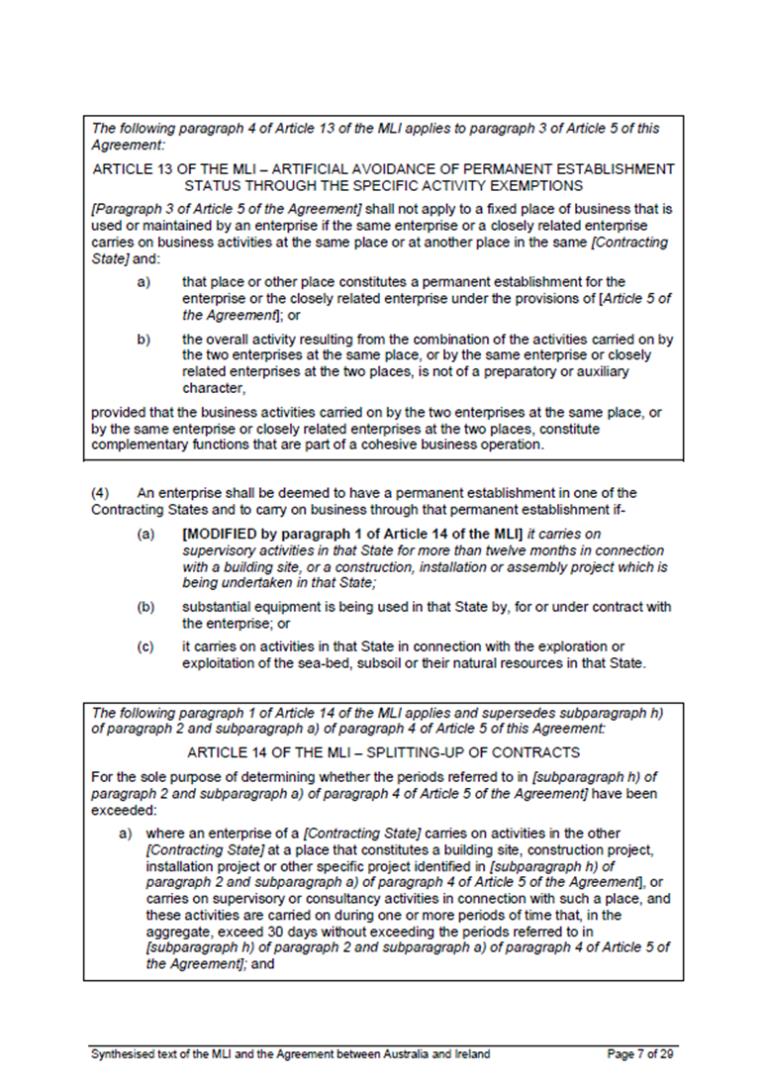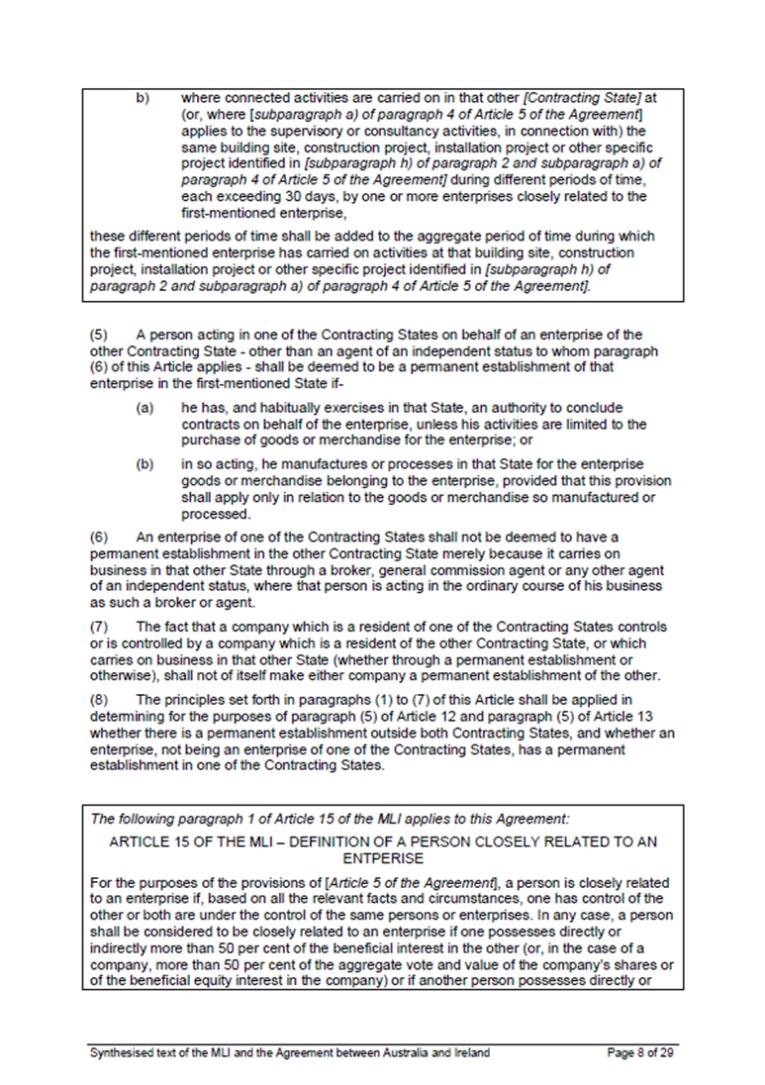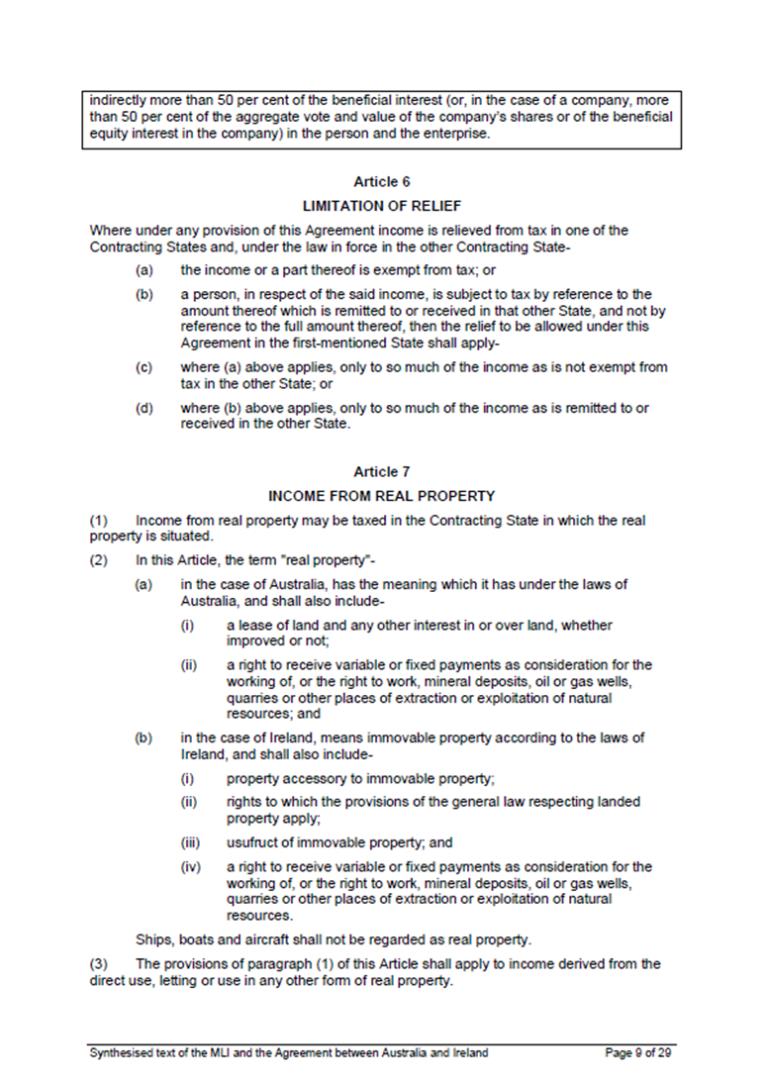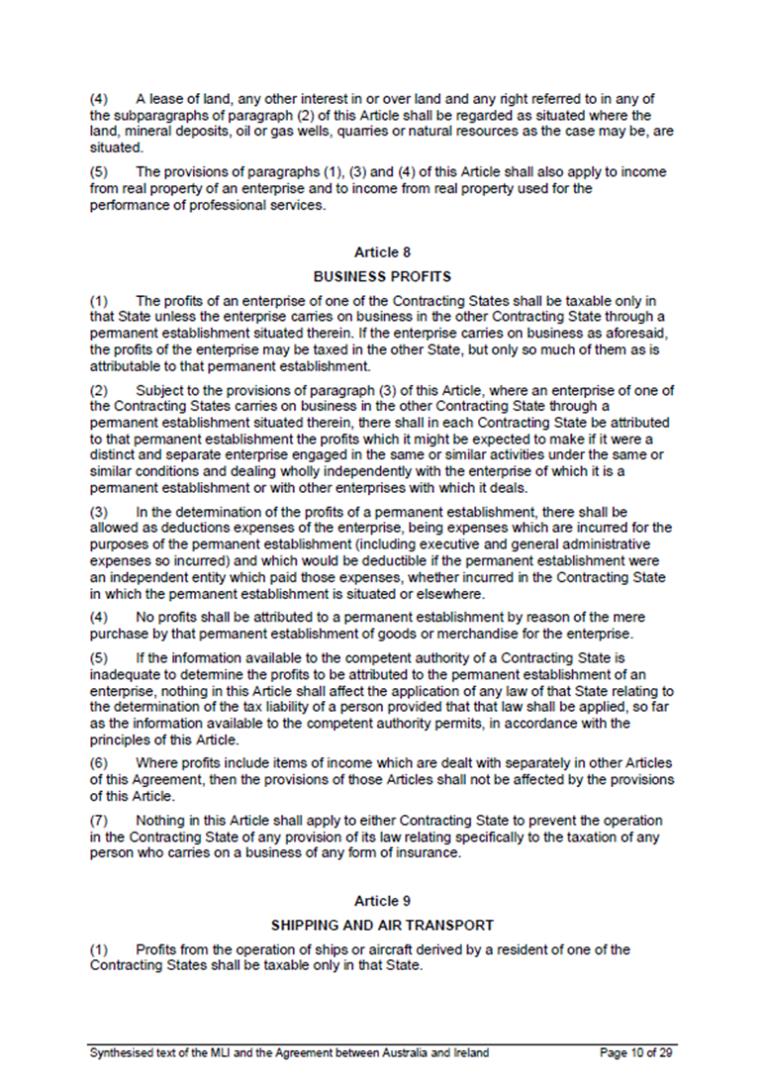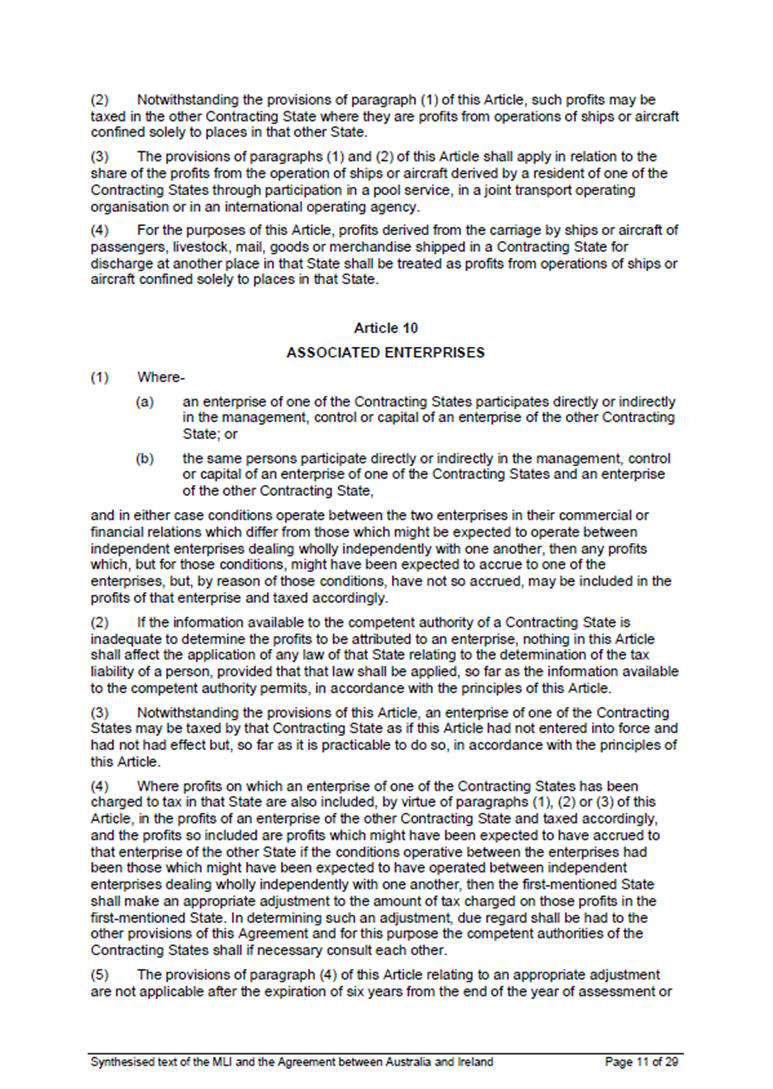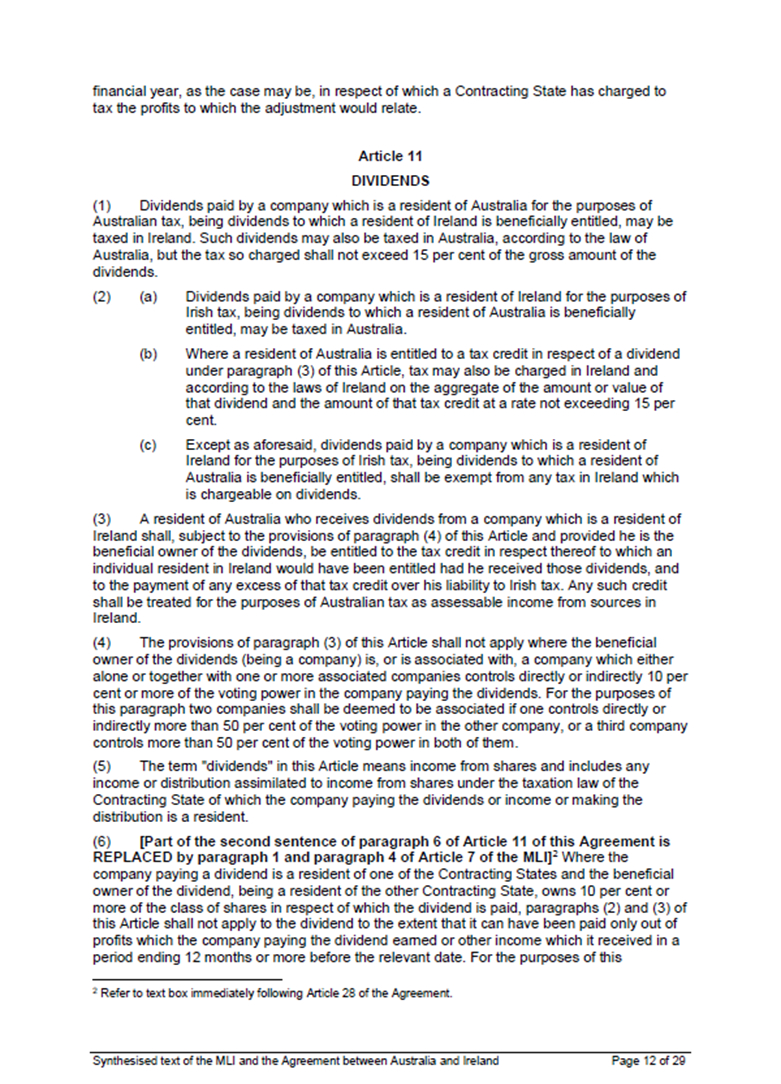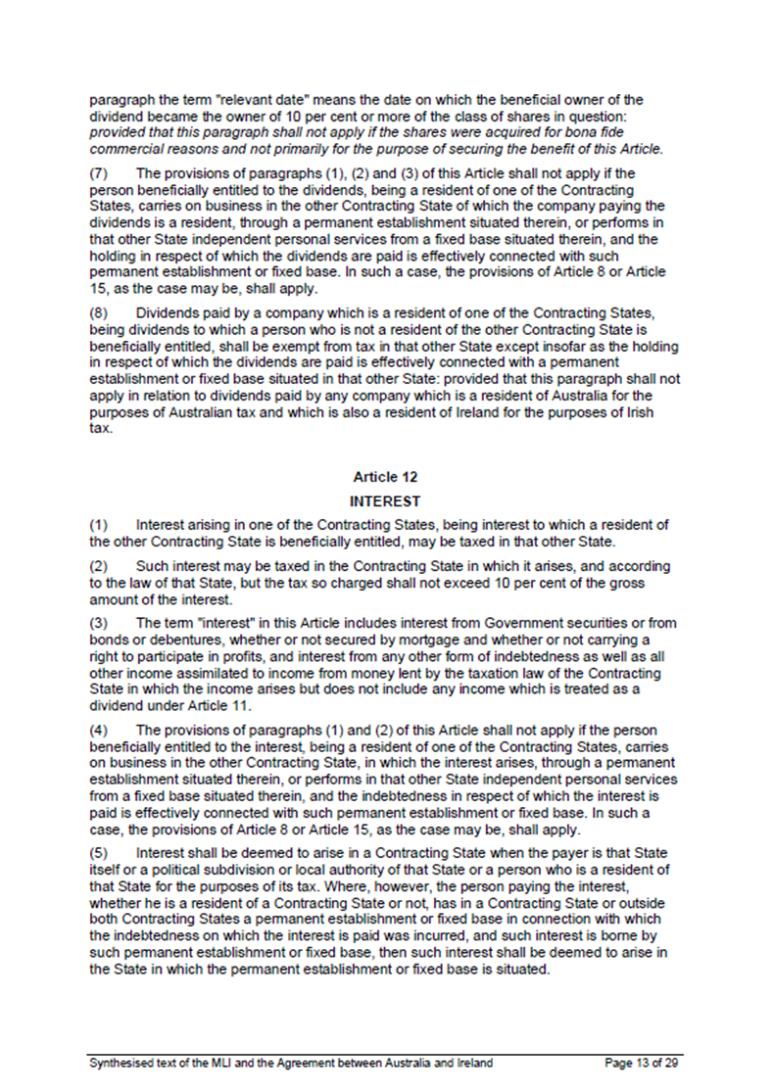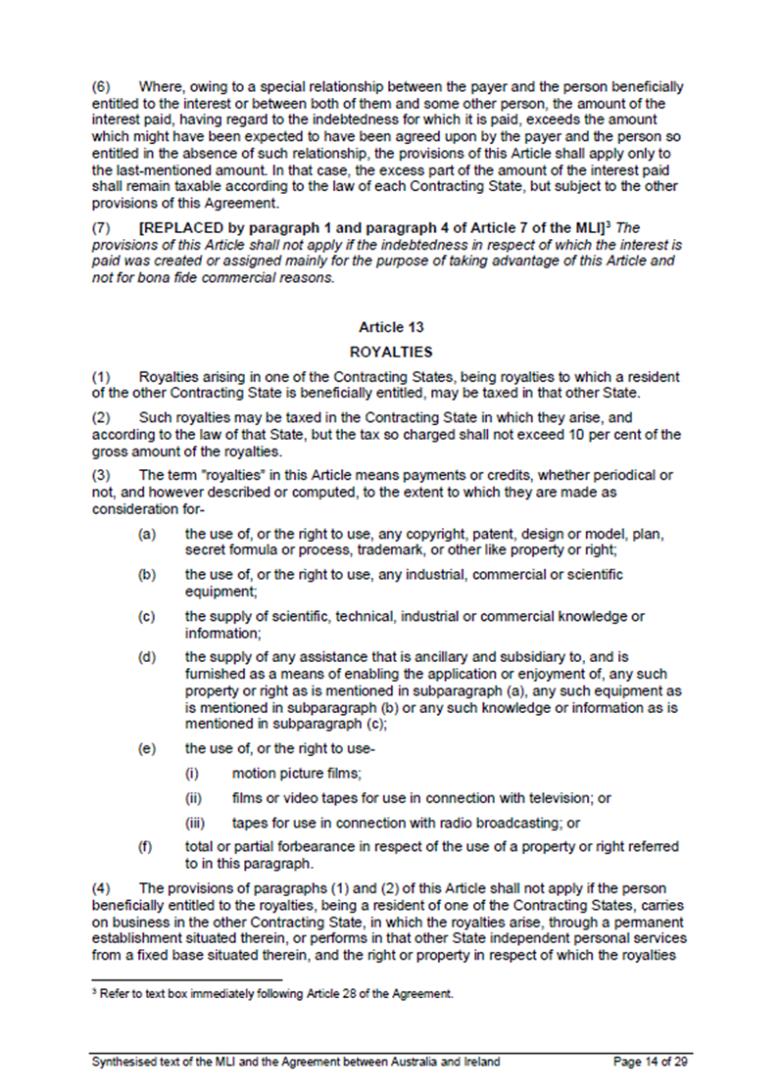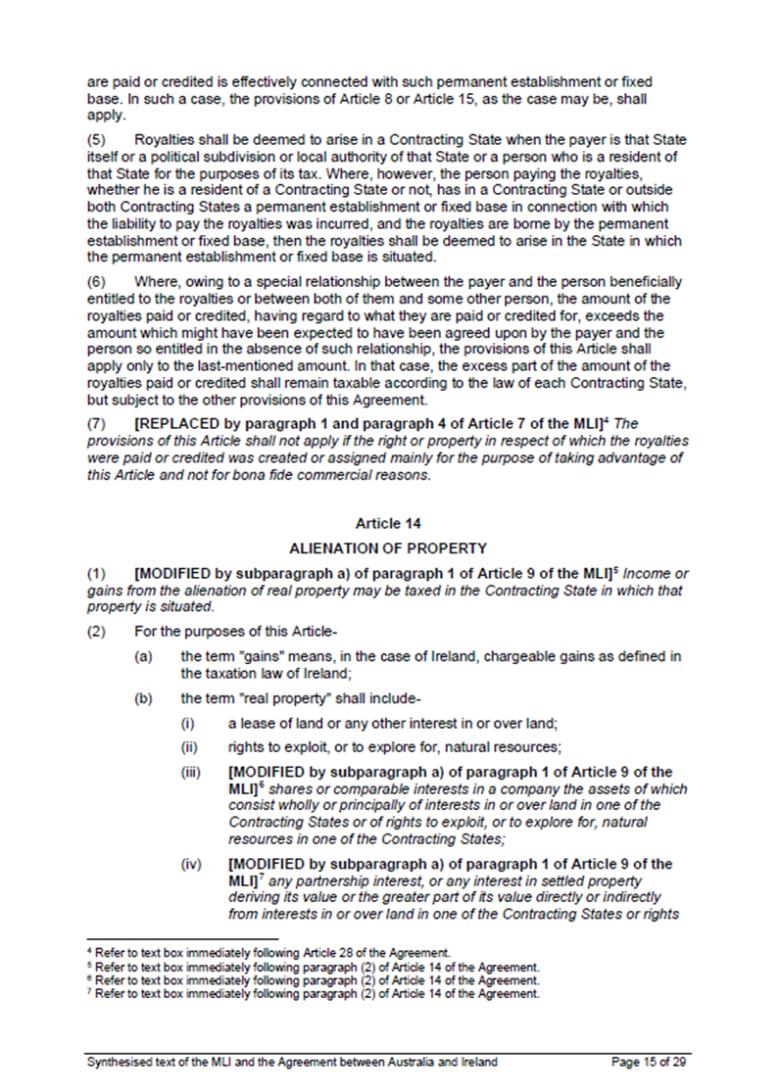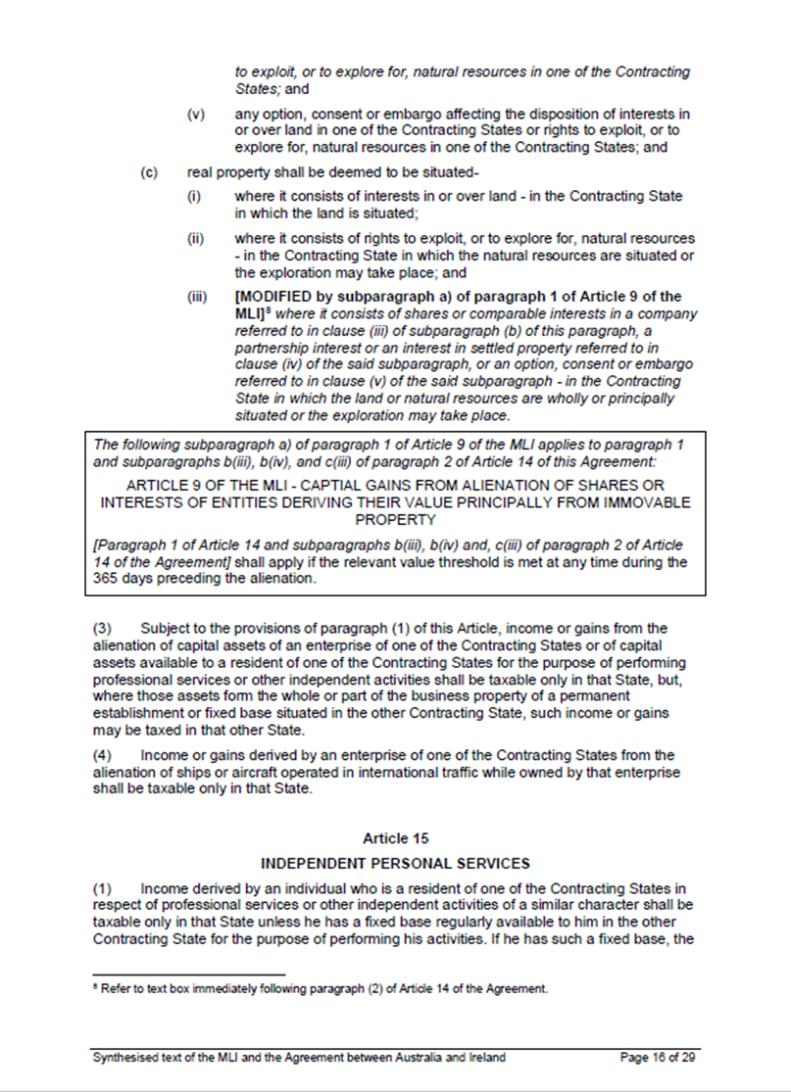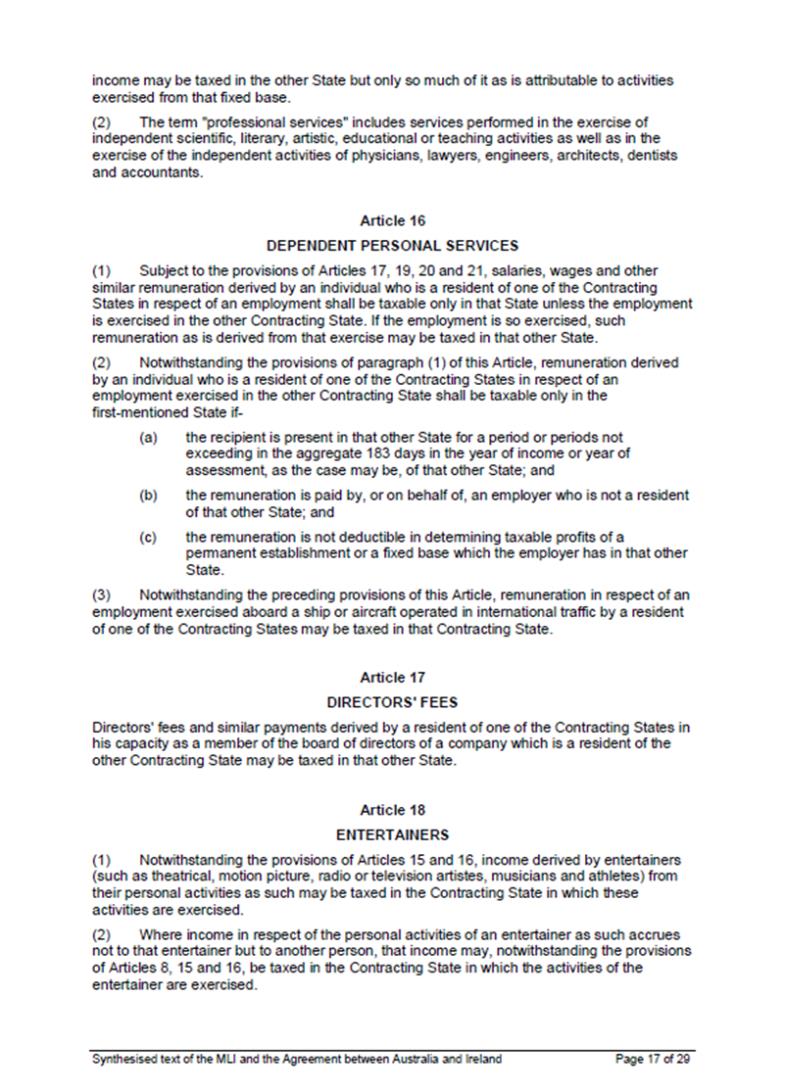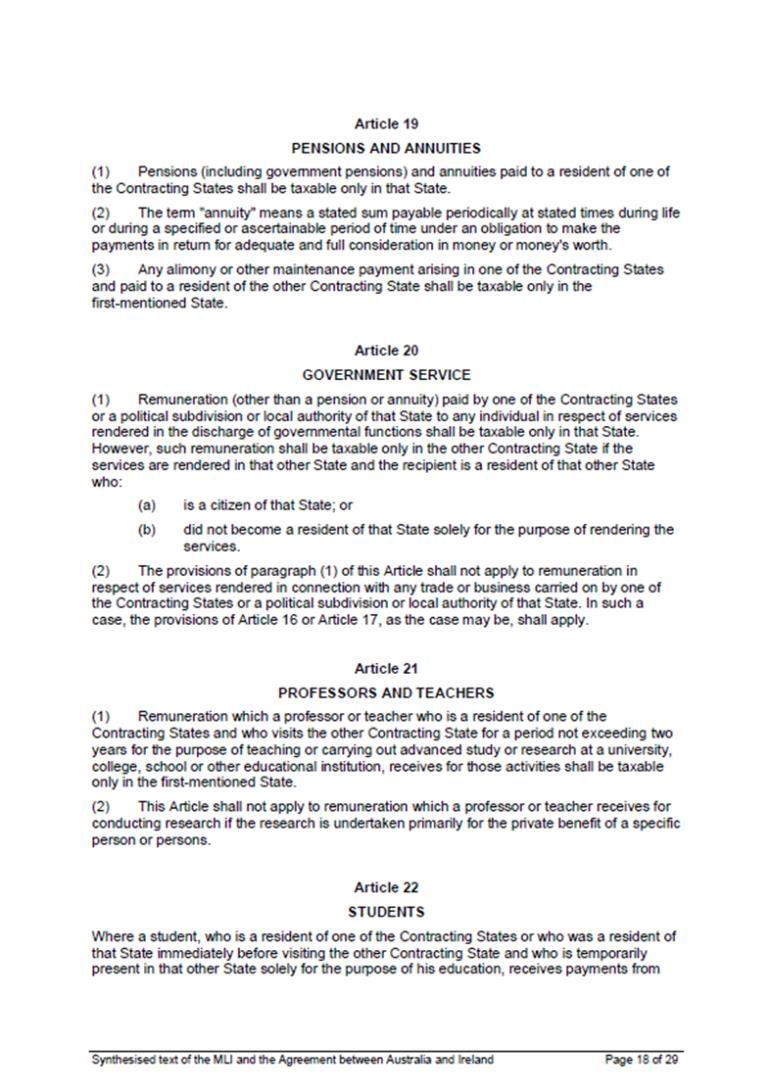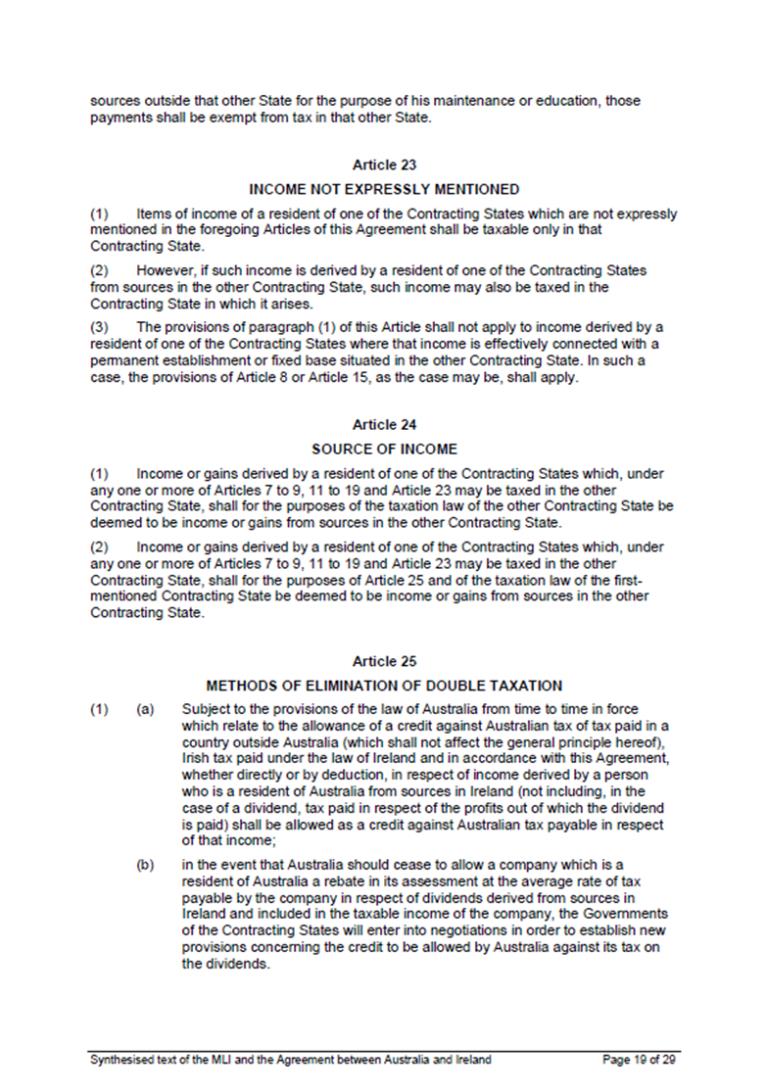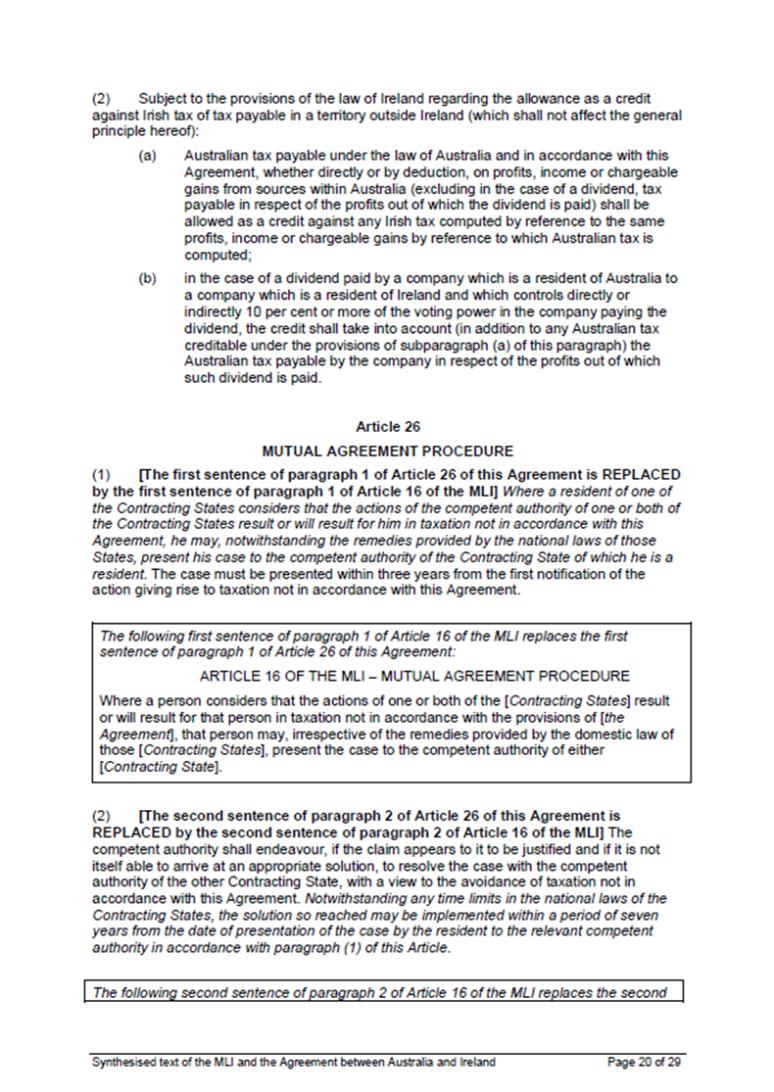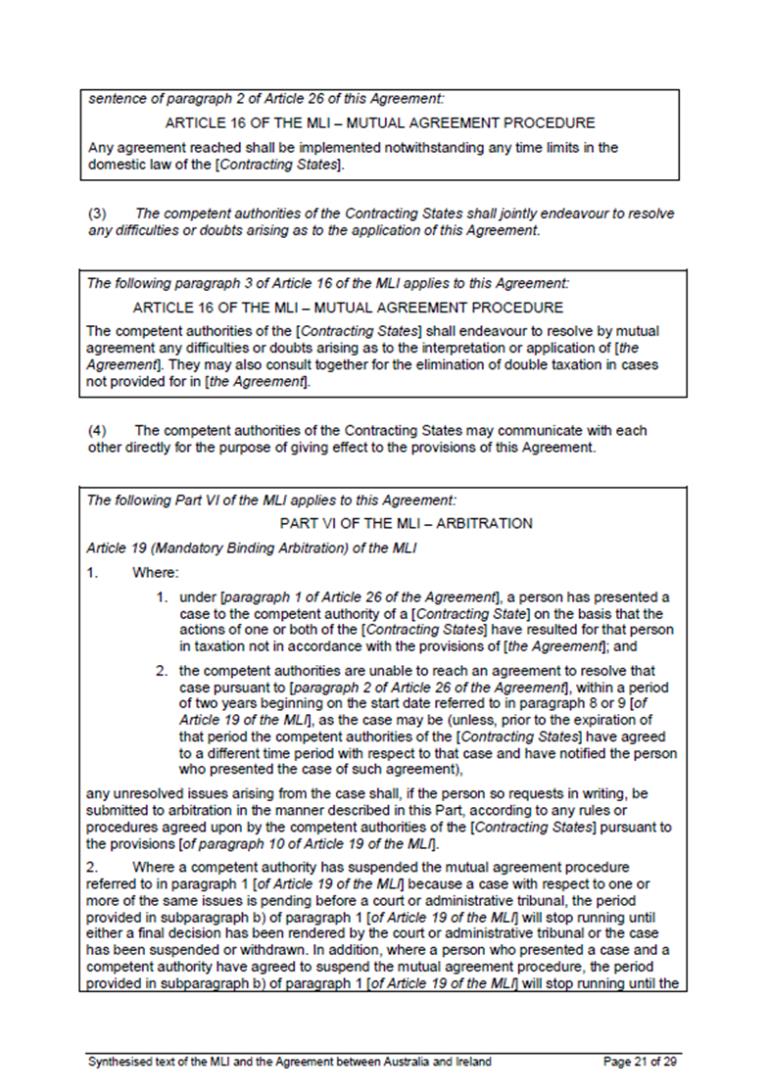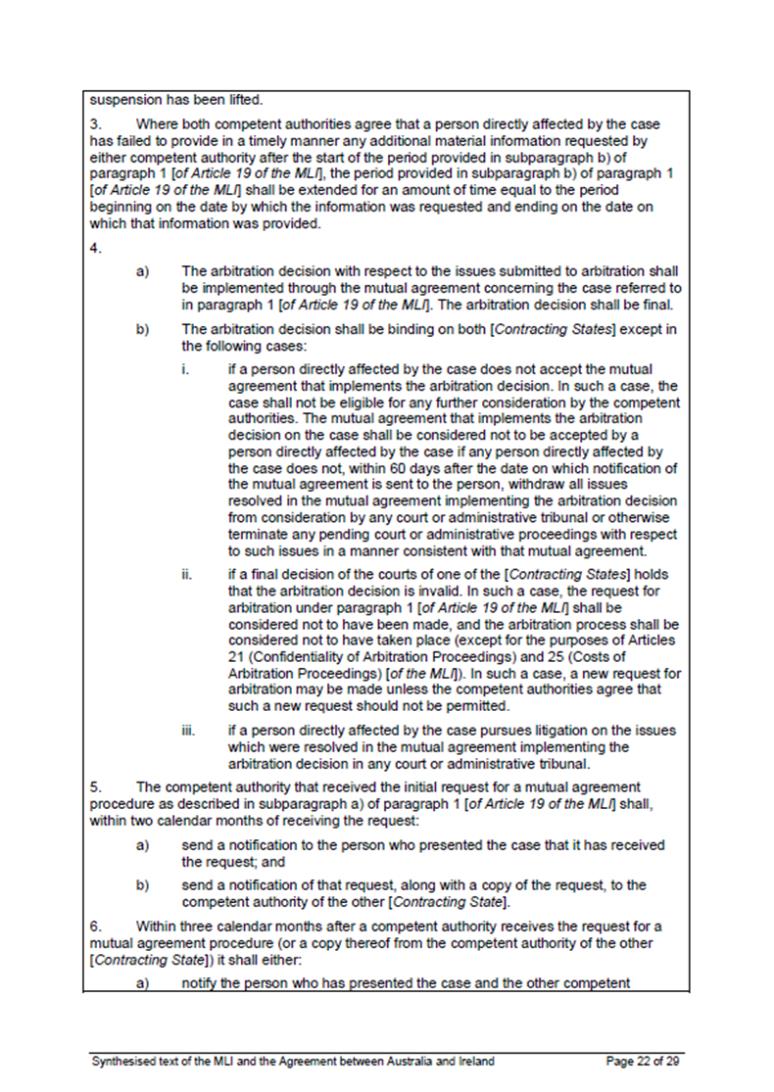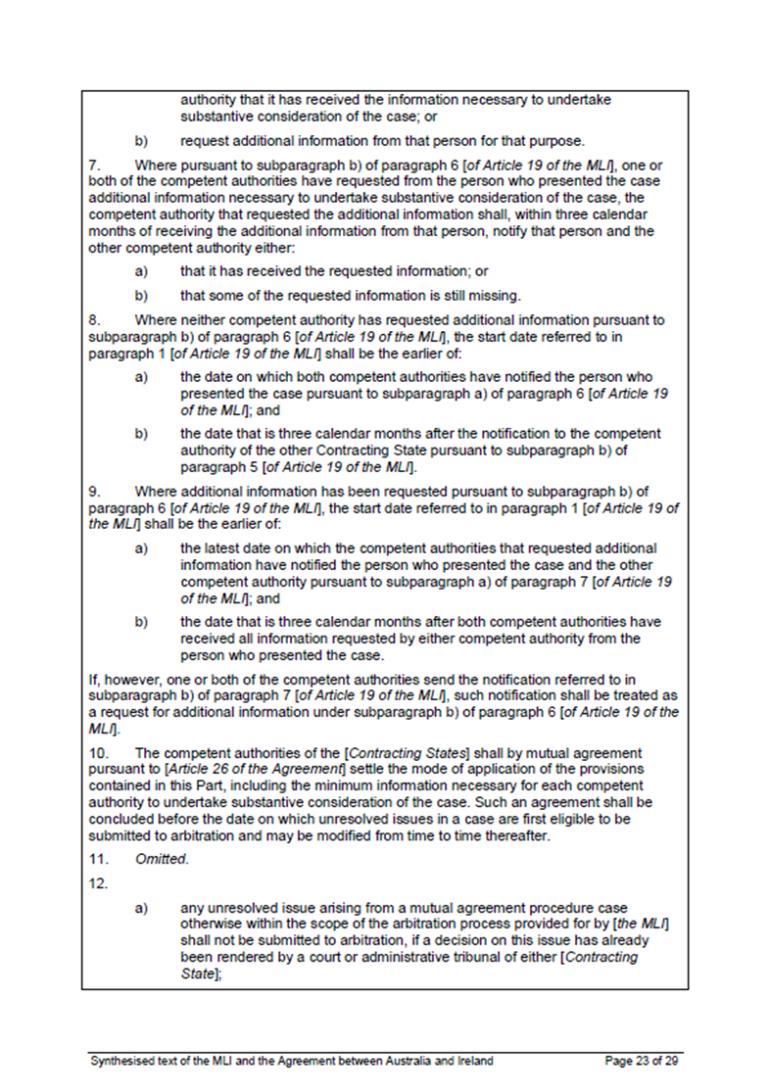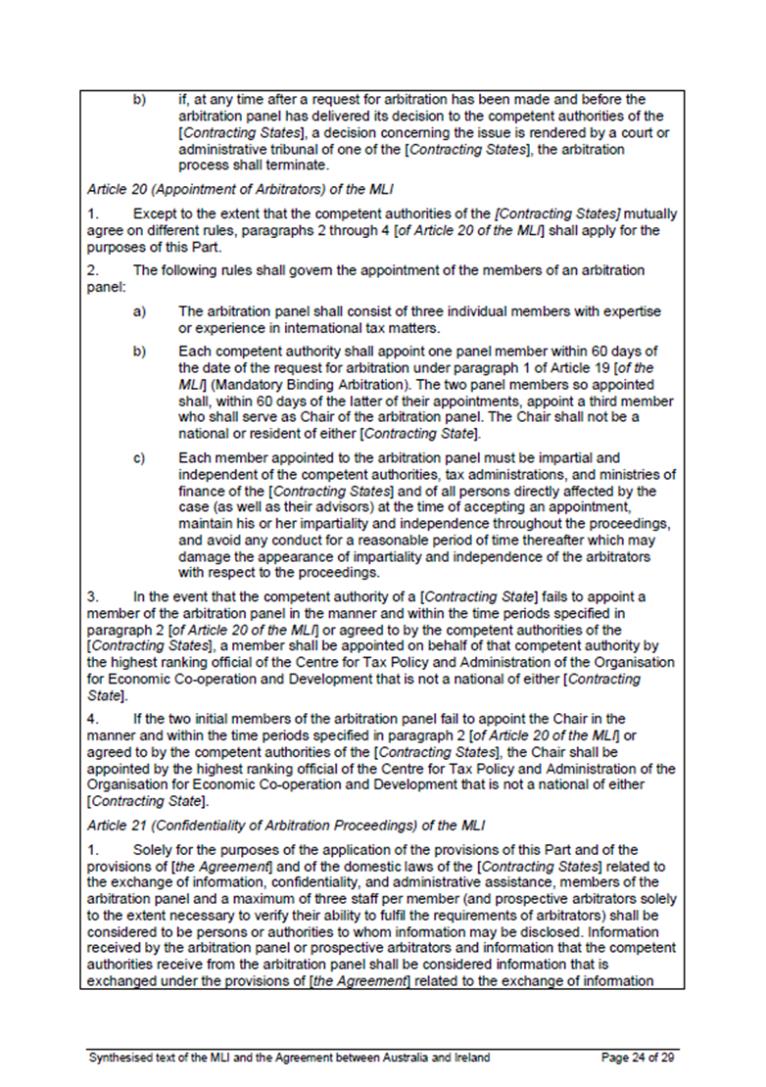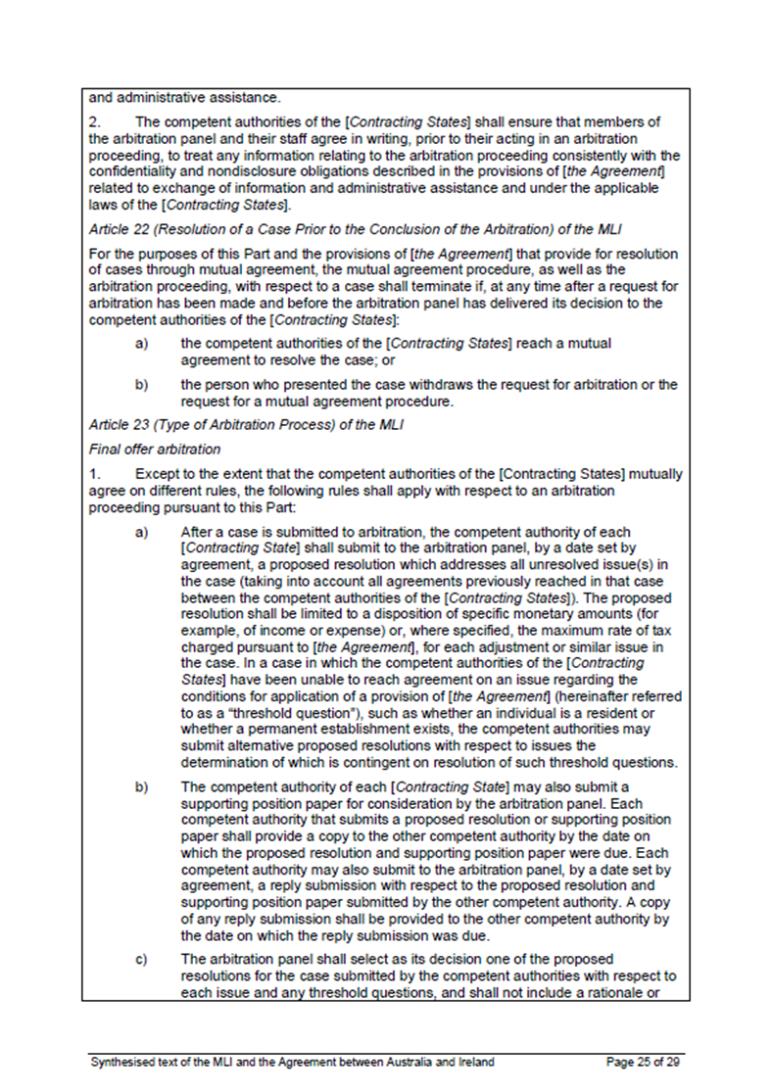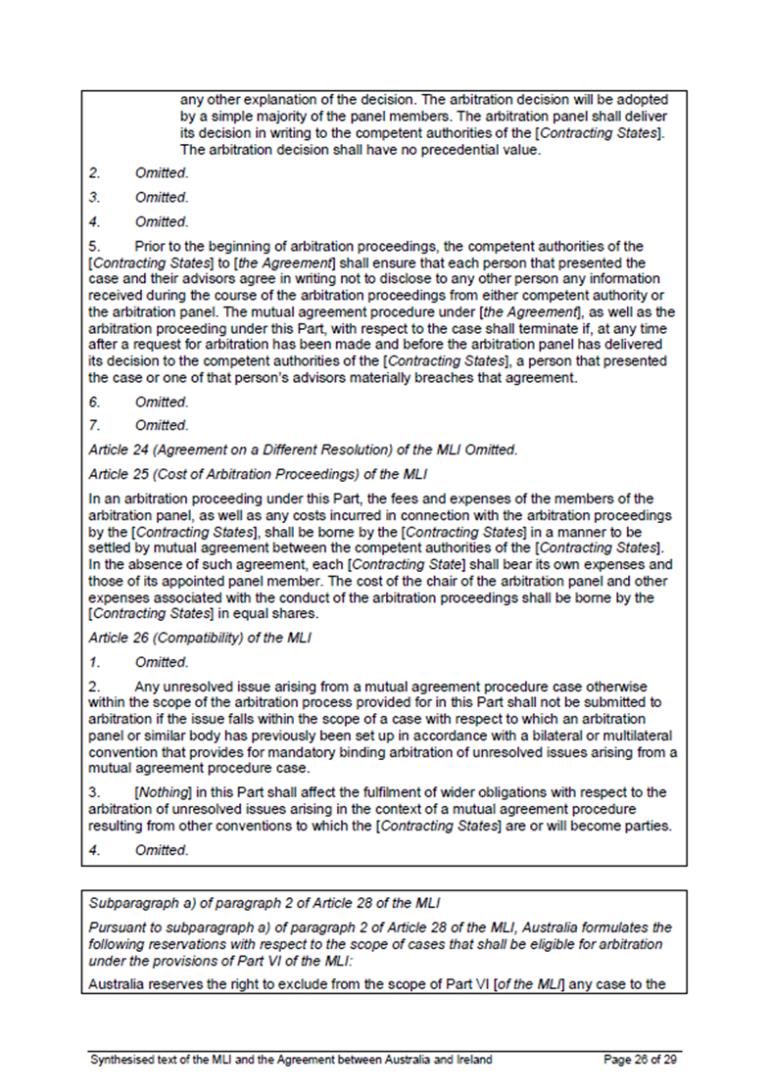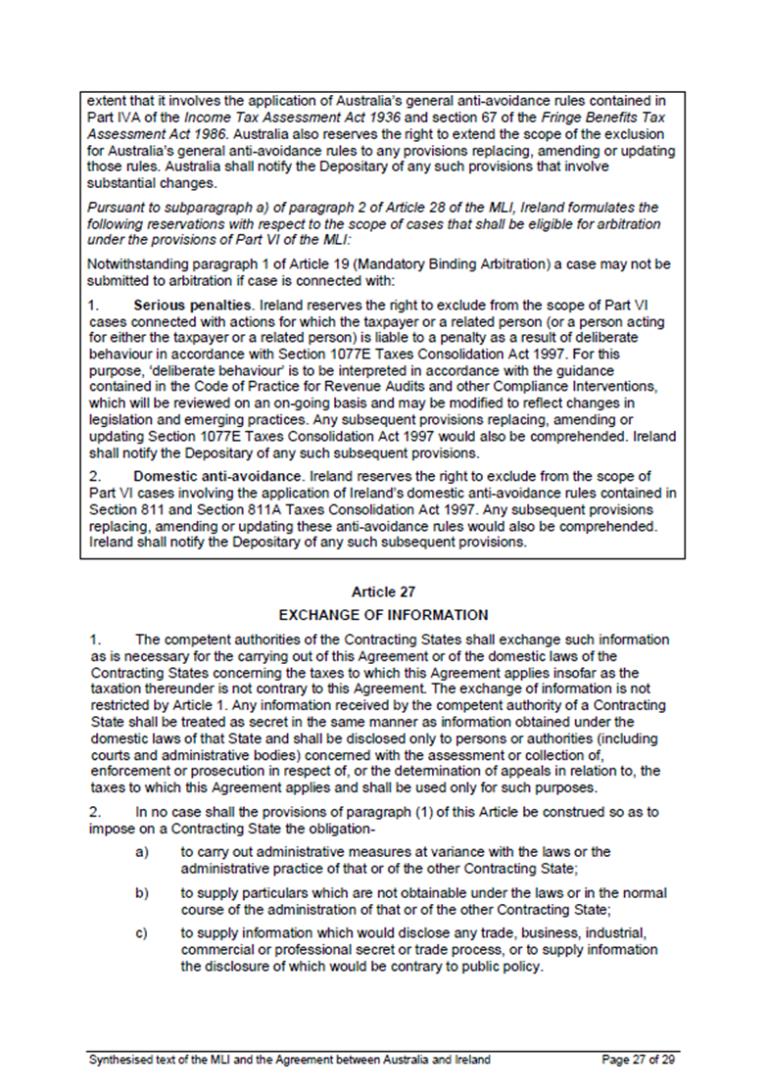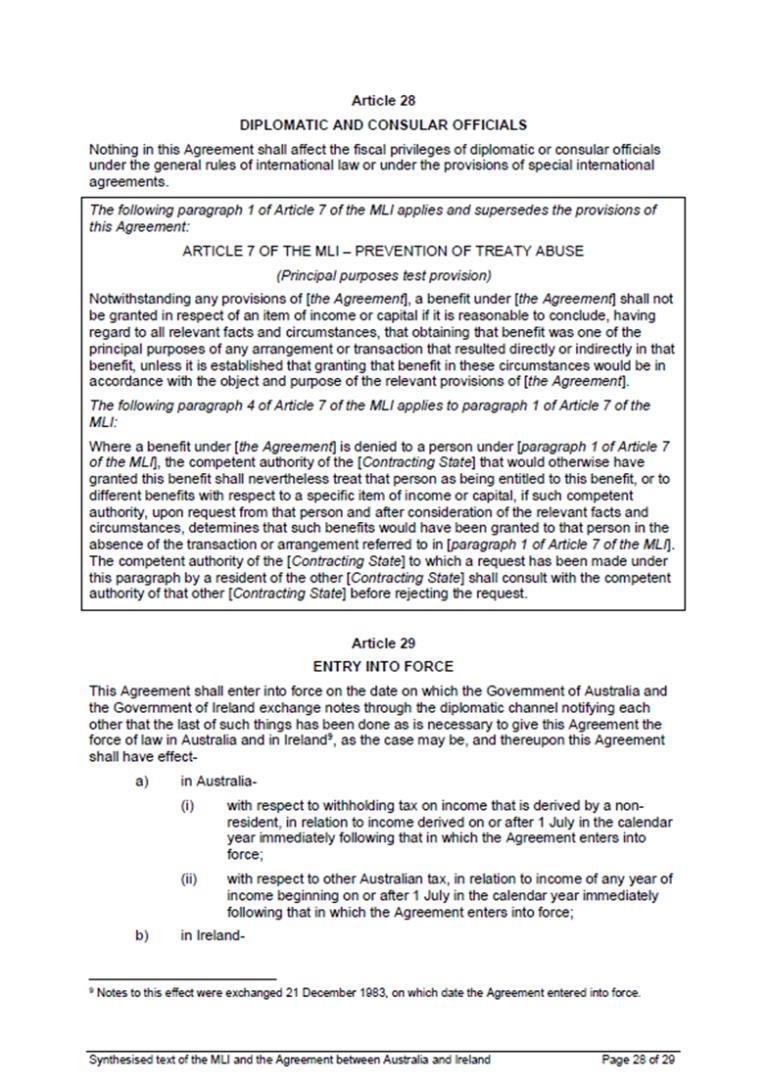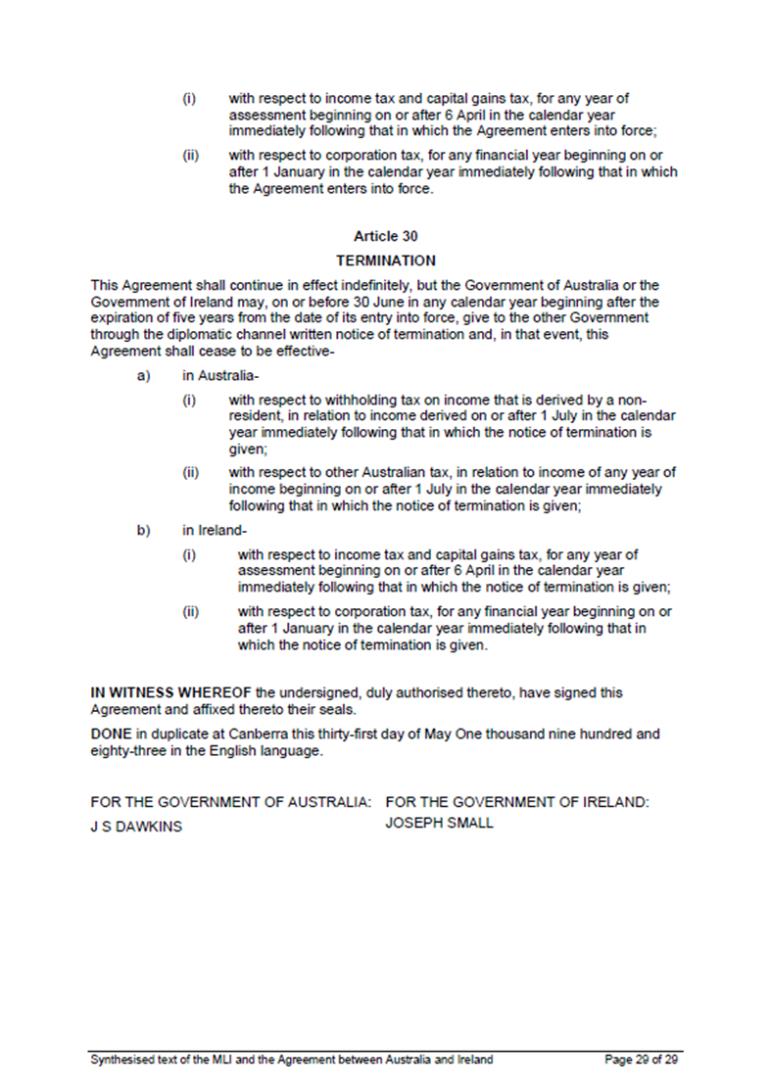Federal Court of Australia
Oracle Corporation Australia Pty Ltd v Commissioner of Taxation (Stay Application) [2024] FCA 1262
ORDERS
ORACLE CORPORATION AUSTRALIA PTY LTD ACN 003 074 468 First Applicant VANTIVE AUSTRALIA PTY LTD ACN 076 201 619 Second Applicant ORACLE CAPAC SERVICES UNLIMITED COMPANY Third Applicant | ||
AND: | Respondent | |
DATE OF ORDER: | 31 October 2024 |
THE COURT ORDERS THAT:
1. The Applicants’ claim for interlocutory relief in the originating application be dismissed with costs.
THE COURT GRANTS:
2. Leave to the Applicants to appeal from Order 1.
Note: Entry of orders is dealt with in Rule 39.32 of the Federal Court Rules 2011.
ORDERS
NSD 1303 of 2023 | ||
| ||
BETWEEN: | ORACLE CORPORATION AUSTRALIA PTY LTD ACN 003 074 468 Applicant | |
AND: | COMMISSIONER OF TAXATION Respondent | |
order made by: | PERRAM J |
DATE OF ORDER: | 31 October 2024 |
THE COURT ORDERS THAT:
1. The Applicant’s interlocutory application be dismissed with costs.
THE COURT GRANTS:
2. Leave to the Applicant to appeal from Order 1.
Note: Entry of orders is dealt with in Rule 39.32 of the Federal Court Rules 2011.
ORDERS
NSD 1304 of 2023 | ||
| ||
BETWEEN: | ORACLE CORPORATION AUSTRALIA PTY LTD ACN 003 074 468 Applicant | |
AND: | COMMISSIONER OF TAXATION Respondent | |
order made by: | PERRAM J |
DATE OF ORDER: | 31 October 2024 |
THE COURT ORDERS THAT:
1. The Applicant’s interlocutory application be dismissed with costs.
THE COURT GRANTS:
2. Leave to the Applicant to appeal from Order 1.
Note: Entry of orders is dealt with in Rule 39.32 of the Federal Court Rules 2011.
PERRAM J:
1 The question on the present applications is whether these three proceedings should be temporarily stayed pending the conclusion of a mutual agreement procedure under the terms of a double taxation treaty between Australia and Ireland. I conclude that they should not be for the following reasons.
Background
2 The Applicants are all part of the Oracle group of companies. The Third Applicant (‘Oracle Ireland’) is resident for tax purposes in Ireland whilst the First Applicant (‘Oracle Australia’) is resident in Australia. The Second Applicant (‘Vantive’) is the provisional head company of a sub-group of companies associated with Oracle Australia.
3 Oracle Australia purchases enterprise software and hardware from Oracle Ireland and distributes these products in Australia. The supply by Oracle Ireland to Oracle Australia is governed by complex contractual arrangements under which Oracle Australia made sublicence fee payments to Oracle Ireland. One bundle of rights which Oracle Australia obtained from Oracle Ireland related to Oracle Australia’s use of computer programs in which Oracle Ireland owned the copyright. The sublicence fee payments were made in the income years ending 31 May 2013 to 31 May 2018.
4 If these sublicence fee payments are found to be ‘royalties’ within the meaning of Art 13(3) of the Agreement between the Government of Australia and the Government of Ireland for the Avoidance of Double Taxation and the Prevention of Fiscal Evasion with Respect to Taxes on Income and Capital Gains, signed on 31 May 1983, [1983] ATS 25 (entered into force on 21 December 1983) (‘DTA’), then Oracle Ireland will be liable to pay withholding tax on them: Income Tax Assessment Act 1936 (Cth) ss 6 (definition of ‘royalty’), 128B(2B); International Tax Agreements Act 1953 (Cth) ss 4(2), 11K.
5 The DTA is a ‘Covered Tax Agreement’ for the purposes of the Multilateral Convention to Implement Tax Treaty Related Measures to Prevent Base Erosion and Profit Shifting, signed on 7 June 2017, [2019] ATS 1 (entered into force on 1 May 2019) (‘the MLI’) to which both Ireland and Australia have acceded: MLI Art 2(1)(a). The DTA defines, in the case of Ireland, the Revenue Commissioners or their authorised representative (‘the IRC’) and, in the case of Australia, the Commissioner of Taxation or his authorised representative (‘the Commissioner’ or ‘the ATO’), as each state’s respective competent authorities: DTA Art 3(1)(j)(i)-(ii). DTA Art 26 establishes a mutual agreement procedure for competent authorities to resolve between themselves complaints by taxpayers relating to the DTA. MLI Art 16 alters the operation of that procedure and MLI Art 19 supplements it with mandatory binding arbitration provisions. The mutual agreement procedure does not result in an arbitration between the two competent authorities in every case. Nevertheless, the arbitration procedure in MLI Art 19 is properly seen as part of the mutual agreement procedure.
6 The text of the MLI operates directly on the text of the DTA. For ease of understanding, the parties relied upon a document entitled ‘the Synthesised Text’ which seeks to incorporate into the text of the DTA the effects that the MLI has had upon it. The Synthesised Text represents the shared understanding of Australia and Ireland’s competent authorities as to the modifications made to the DTA by the MLI. A copy of the Synthesised Text is attached to these reasons in Schedule A.
7 Both the MLI and the DTA have the force of Commonwealth law in Australia: International Taxation Agreements Act 1953 (Cth) ss 5, 11K.
8 This matter arose from tax processes pertaining to two sets of tax years: (1) the income year ending 31 May 2013 and (2) the income years ending 31 May 2014 to 31 May 2018. The reasons why these tax years proceeded on administratively separate paths are not material to any issue on this application. Nonetheless, I set out their relevant procedural steps for clarity.
9 In the case of the income year ending 31 May 2013, the facts are as follows:
(1) In April 2015, the Commissioner commenced an audit of Vantive. Among other topics, this audit covered certain withholding tax payable in relation to payments made by Oracle Australia to Oracle Ireland.
(2) Following that audit, on 30 May 2018, the Commissioner sent a notice of penalty to Oracle Australia ordering it to pay $25,876,525.80.
(3) On 26 June 2018, the Commissioner sent a notice of non-resident royalty withholding tax to Oracle Ireland advising that it was also liable to that sum and that a general interest charge applied.
(4) On 6 December 2019, the Commissioner decided not to remit the penalty for failure to withhold from the royalty payments.
(5) On 3 February 2020, Oracle Australia filed a notice of objection against the Commissioner’s 30 May 2018 penalty notice and 6 December 2019 decision not to remit that penalty.
10 In the case of the income years ending 31 May 2014 to 31 May 2018, the facts are as follows:
(1) In October 2019, the Commissioner engaged in another audit of Vantive. Among other topics, this audit also covered certain withholding tax payable in relation to payments made by Oracle Australia to Oracle Ireland.
(2) On 23 March 2022, the Commissioner sent a notice of penalty to Oracle Australia ordering it to pay $227,662,233.00.
(3) That same day, the Commissioner also decided not to remit the penalty for failure to withhold from the royalty payments.
(4) On 20 May 2022, Oracle Australia filed a notice of objection against the Commissioner’s 23 March 2022 penalty notice and decision not to remit that penalty.
(5) On 17 June 2022, the Commissioner sent a notice of non-resident royalty withholding tax to Oracle Ireland advising that it was also liable to approximately the penalty amount and that a general interest charge applied.
11 Whilst these procedures were in train, Oracle Ireland enlivened the mutual agreement procedure in Art 26 of the DTA by making a request for a mutual agreement procedure on 18 May 2021 to the IRC. This first request related only to the income year ending 31 May 2013.
12 On 8 September 2023, the Commissioner disallowed Oracle Australia’s objections concerning the income year ending 31 May 2013 and the income years ending 31 May 2014 to 31 May 2018. Oracle Ireland then lodged a second request for a mutual agreement procedure under the DTA on 2 November 2023, this time concerning the income years ending 31 May 2014 to 31 May 2018.
13 Both of Oracle Ireland’s requests for mutual agreement procedures were accepted by the IRC although at different times. Both mutual agreement procedures were in progress until the events giving rise to this application. By that point, the first mutual agreement procedure had advanced sufficiently far for the ATO to have provided the IRC with its position paper and it was expected that the IRC would shortly deliver its position paper.
14 Any appeal to this Court from the Commissioner’s disallowance of Oracle Australia’s objections on 8 September 2023 was required to be made by 7 November 2023: Taxation Administration Act 1953 (Cth) s 14ZZN. The taxpayers filed these proceedings on 7 November 2023 which preserved their domestic rights of appeal. At the same time, the taxpayers immediately sought a temporary stay of the proceedings to permit the mutual agreement procedures (including any arbitration) to progress to finality.
15 Art 19(2) of the MLI recognises that either competent authority may suspend the mutual agreement procedure ‘because a case with respect to one or more of the same issues is pending before a court or administrative tribunal’. On 17 November 2023, the ATO suspended the first mutual agreement procedure and, on 21 December 2023, it suspended the second.
16 A suspension has the effect of stopping time running on the pre-arbitration period: MLI Art 19(2). The pre-arbitration period is contained in MLI Art 19(1), which provides that where the relevant competent authorities are unable to reach an agreement resolving a case presented by a taxpayer within two years, any unresolved issues arising from the case ‘shall’ be submitted to arbitration if the taxpayer so requests in writing.
17 MLI Art 19(2) also recognises that time will begin to run again if the domestic proceeding ‘has been suspended or withdrawn’ (or if it is finally determined). It was accepted on both sides that a stay of these proceedings would result in their ‘suspension’ within the meaning of MLI Art 19(2). The parties also agreed that if the proceedings were suspended in that sense, then the ATO would be obliged to continue the mutual agreement procedure as a matter of Commonwealth law. Consistently therewith, the Commissioner made clear during argument that if a stay of the proceedings was granted, he would re-enliven the mutual agreement procedure.
18 The provisions of the DTA and the MLI give no explicit guidance on the circumstances in which the suspension of the domestic proceeding referred to in MLI Art 19(2) should occur. Although it is sometimes said that the power to grant a temporary stay to permit a case in another court to proceed is a ‘case management stay’ (Michael Wilson & Partners Ltd v Emmott [2021] NSWCA 315; 396 ALR 497 at [103] and [106] per Brereton JA (Leeming JA agreeing at [1] and Emmett AJA agreeing at [137])) or an aspect of the Court’s powers to control its own proceedings (Sterling Pharmaceuticals Pty Ltd v Boots Co (Aust) Pty Ltd (1992) 34 FCR 287 at 290-291 per Lockhart J (‘Sterling Pharmaceuticals’)), the actual power is located in s 23 of the Federal Court of Australia Act 1976 (Cth) (‘FCA Act’): Australian Securities and Investments Commission v Australia and New Zealand Banking Group Ltd [2019] FCA 964; 138 ACSR 42 at [50] per Moshinsky J. This provision authorises the Court to make such orders, including interlocutory orders, as the Court thinks appropriate.
19 The scope of s 23 may be affected by the statutory context of a particular case. For example, where the Court has another specific power of injunction subject to some limitation, s 23 does not authorise an injunction which evades that limitation: Thomson Australian Holdings Pty Ltd v Trade Practices Commissioner (1981) 148 CLR 150 at 161-163 per Gibbs CJ, Stephen, Mason and Wilson JJ.
20 The matters relevant to the grant of a temporary stay under s 23 include not only case management matters of the kind described by Lockhart J in Sterling Pharmaceuticals, but also what can be inferred from the subject matter, purpose and scope of any relevant legislative context: Minister for Aboriginal Affairs v Peko-Wallsend Ltd (1986) 162 CLR 24 at 39-40 per Mason J (Gibbs CJ agreeing at 30 and Dawson J agreeing at 71). That case was concerned with the identification of relevant and irrelevant considerations in the context of an administrative decision, but there is no reason to think that any different approach applies to a statutory judicial power. It has been accepted before that the discretion under s 23 may be affected by the legislative policy attending the occasion for its exercise: HVAC Construction (Qld) Pty Ltd v Energy Equipment Engineering Pty Ltd [2002] FCA 1638; 44 ACSR 169 at [48]-[49] per French J (as his Honour then was). In this case, the relevant legislative context is the DTA and the MLI since both have the force of Commonwealth law.
21 For completeness, I note that the Applicants in their written submissions (‘AS’) contended that guidance in the current situation could be gleaned from the decisions in Langford v RCL Cruises Ltd t/as Royal Caribbean Cruises [2023] FCA 626, Onslow Salt Pty Ltd v Buurabalayji Thalanyji Aboriginal Corporation [2018] FCAFC 118 (‘Onslow Salt’), Infrastructure Services Luxembourg SARL v Kingdom of Spain [2019] FCA 1220 and Websyte Corporation Pty Ltd v Alexander (No 2) [2012] FCA 562. The situation in the current case is sui generis and very different to those cases. I do not regard them as providing any real guidance.
Treaty Considerations
22 In determining the subject matter, purpose and scope of the DTA and the MLI, both treaties are to be interpreted in accordance with Arts 31 and 32 of the Vienna Convention on the Law of Treaties, opened for signature 23 May 1969, 1155 UNTS 331, [1974] ATS 2 (entered into force 27 January 1980). Both the DTA and the MLI entered into force after January 1980. Thus, both treaties are to be interpreted in accordance with the ordinary meaning of their terms in their context and in light of their object and purpose: Vienna Convention Art 31(1). Further, there is also to be taken into account, together with context, any subsequent practices in the application of the treaties which establish the agreement of the parties regarding their interpretation: Vienna Convention Art 31(3)(b).
23 It is established in relation to double taxation treaties based on the Model Convention with Respect to Taxes on Income and on Capital (‘the Model Convention’) prepared by the Organisation for Economic Co-operation and Development (‘OECD’) that it is permissible to take into account the OECD’s ‘Commentary on Article 25 Concerning the Mutual Agreement Procedure’ in Model Tax Convention on Income and Capital: Condensed Version (OECD Publishing, 2017) (‘the Commentary’) when interpreting the provisions of such a treaty: see Thiel v Federal Commissioner of Taxation (1990) 171 CLR 338 (‘Thiel’) at 344 per Mason CJ, Brennan and Gaudron JJ, 349 per Dawson J and 356-357 per McHugh J. For the same reasons given in Thiel, I also conclude that it is permissible to take into account, when interpreting the DTA and the MLI, the OECD’s Explanatory Statement to the MLI (adopted on 24 November 2016) (‘Explanatory Statement’) and the OECD’s Making Dispute Resolution Mechanisms More Effective, Action 14 – 2015 Final Report (OECD Publishing, 2015) (‘Action 14 Report’). The Explanatory Statement explains at [1]-[4] that the OECD/G20 Project to tackle Base Erosion and Profit Shifting (‘the BEPS Project’) was approved by the OECD’s Committee on Fiscal Affairs and endorsed by all G20 Leaders in September 2013, that the Action 14 Report and the MLI arose from the BEPS Project, that the OECD Council and G20 Leaders endorsed the Action 14 Report in November 2015, and that the Action 14 Report accompanied the Explanatory Statement. Both the Action 14 Report and Explanatory Statement inform the operation of the relevant international double taxation treaties.
24 The following aspects of the subject matter, scope and purpose of the DTA and the MLI are relevant to the exercise of the Court’s discretion under s 23 of the FCA Act.
25 First, if a temporary stay is not granted then the mutual agreement procedure will not be capable of affecting Oracle Ireland’s liability to Australian royalty withholding tax or Oracle Australia’s liability to penalty. Once these proceedings result in a final determination of whether the payments are royalties within the meaning of DTA Art 13, the Commissioner, as an officer of the Commonwealth within the meaning of s 75(v) of the Constitution, will be bound by Australian law to give effect to it: Commissioner of Taxation v Indooroopilly Children Services (Qld) Pty Ltd [2007] FCAFC 16; 158 FCR 325 at [3]-[7] per Allsop J (as his Honour then was) (Stone J agreeing at [1] and Edmonds J agreeing at [48]).
26 Although the pre-arbitration period will begin to run again once a final judicial determination is made, it will not be possible for the ATO to reach an agreement with the IRC which contradicts that final judicial determination, as the Commissioner will be bound by law only to act on the basis of whatever that determination is. This situation is recognised in paragraph 27 of the Commentary:
Some States regard certain issues as not susceptible to resolution by the mutual agreement procedure generally, or at least by taxpayer initiated mutual agreement procedure, because of constitutional or other domestic law provisions or decisions. An example would be a case where granting the taxpayer relief would be contrary to a final court decision that the tax authority is required to adhere to under that State’s constitution.
27 Thus, whilst it may remain possible for the IRC and the ATO to reach some other agreement to avoid the double taxation of Oracle Ireland, necessarily any such agreement would not involve a consensus contrary to the judicial determination. I do not accept the taxpayers’ submission that once a judicial determination is made then the ATO will be required to negotiate with the IRC other than in good faith. The Applicants rely on North Sea Continental Shelf Cases (Federal Republic of Germany v Denmark; Federal Republic of Germany v Netherlands) (Judgment) [1969] ICJ Rep 3 (‘North Sea Continental Shelf Cases’) at [85(a)]. This submission proceeds on the incorrect assumption that the avoidance of double taxation cannot be achieved by other means (for example, foreign tax credits). In any event, I do not think that the actions of the ATO in negotiating in accordance with any domestic judicial interpretation could constitute bad faith in the relevant sense. The situation which would then obtain is very different to that considered in the North Sea Continental Shelf Cases.
28 Further, if a mutual agreement procedure follows a judicial determination in this proceeding, and the IRC and the ATO are unable to reach an agreement, the matter will not then proceed to arbitration because Ireland and Australia have made the reservation in MLI Art 19(12) that:
any unresolved issue arising from a mutual agreement procedure case otherwise within the scope of the arbitration process provided for in [the MLI] shall not be submitted to arbitration, if a decision on this issue has already been rendered by a court or administrative tribunal of either Contracting [State].
29 The effect of the refusal of the stay will therefore be to make the determination of the royalty question by this Court (or any higher court) definitive of Oracle Ireland’s liability to Australian royalty tax and Oracle Australia’s cognate liability to pay the penalties for non-withholding.
30 Secondly, the rejection of the stay may carry with it a risk of double taxation. That risk arises from the possibility that the revenue and judicial authorities of Ireland and Australia may arrive at different interpretations of the royalties clause in the DTA. But this risk is not certain and is likely to be ameliorated by a joint desire on the part of at least the judicial authorities to avoid that outcome.
31 On the other hand, granting the stay will reduce but not eliminate the same risk. The potential risk reduction arises from the fact that the mutual agreement procedure (and any arbitration) may result in an outcome which avoids double taxation. But the risk is not eliminated because the taxpayers may choose not to accept the outcome of that procedure or arbitration, in which case the issues will be determined through the Australian courts. That carries with it, again, the risk that the Irish and Australian revenue authorities and courts may arrive at different conclusions.
32 The various outcomes arising from this kind of situation, in circumstances where a stay is denied, are recognised in the Commentary at paragraph 35 (see also the last sentence of paragraph 28):
If a claim has been finally adjudicated by a court in either State, a taxpayer may wish even so to present or pursue a claim under the mutual agreement procedure. In some States, the competent authority may be able to arrive at a satisfactory solution which departs from the court decision. In other States, the competent authority is bound by the court decision (i.e. it is obliged, as a matter of law, to follow the court decision) or will not depart from the court decision as a matter of administrative policy or practice. It may nevertheless present the case to the competent authority of the other Contracting State and ask the latter to take measures for avoiding double taxation.
33 Thirdly, it is evident that the central purpose of the DTA is the avoidance of double taxation: see DTA Preamble; MLI Preamble; Commentary at paragraph 9. The mutual agreement procedure in DTA Art 26 and the binding mandatory arbitration procedure in MLI Art 19 are detailed attempts to achieve the central purpose of the DTA.
34 Fourthly, the proceedings were commenced because of the time limit imposed by s 14ZZN of the Taxation Administration Act 1953 (Cth). The reason that 60 day period began to run was because the Commissioner issued his objection decisions. So, if a stay is refused in the current circumstances, it will empower the Commissioner to make taxpayers elect between the mutual agreement procedure and their domestic proceedings. Indeed, the Commissioner was open about this in his written submissions (‘CS’) at [43], contending that the Applicants could re-enliven the mutual agreement procedure by the expedient of discontinuing the present proceedings (and thereby surrendering their domestic appeal rights).
35 Such a power in the Commissioner is inconsistent with a number of textual indications in the DTA and the MLI, which contemplate that a taxpayer should be permitted to access the mutual agreement procedure in addition to any domestic procedures. For example:
(1) prior to the adoption of the MLI, DTA Art 26(1) stated that the taxpayer may present his case to the relevant competent authority ‘notwithstanding the remedies provided by the national law of those States’;
(2) MLI Art 16(1), which [193] of Explanatory Statement explains modified DTA Art 26(1) to facilitate the taxpayer’s ability to present its case, repeats that a person may present their case to the relevant competent authorities ‘irrespective of the remedies provided by the domestic law’;
(3) MLI Art 16(2) also provides that ‘Any agreement reached [through the mutual agreement procedure] shall be implemented notwithstanding any time limits in the domestic law of the Contracting States’; and
(4) further, any agreement reached by the competent authorities under the mutual agreement procedure does not bind the taxpayer and the same is true of the arbitration procedure under MLI Art 19(4)(b)(i). Whilst it is the taxpayer that initiates the mutual agreement procedure, only the two competent authorities are bound by its outcome.
36 Fifthly, the Explanatory Statement, the Action 14 Report and the Commentary also support the proposition that the taxpayer is to have access to both procedures. For example, at [217], the Explanatory Statement provides that ‘the mutual agreement procedure is available to taxpayers irrespective of the judicial and administrative remedies provided by the domestic law of the Contracting Jurisdictions’. Similarly, at [4], the Action 14 Report notes that ‘Countries should ensure that taxpayers that meet the requirements of paragraph 1 of Article 25 can access the mutual agreement procedure’. Paragraph 77 of the Commentary also states:
A second issue involves the relationship between existing domestic legal remedies and arbitration where these legal remedies have not been exhausted. In that case, the approach that would be the most consistent with the basic structure of the mutual agreement procedure would be to apply the same general principles when arbitration is involved. Thus, the legal remedies would be suspended pending the outcome of the mutual agreement procedure involving the arbitration of the issues that the competent authorities are unable to resolve and a tentative mutual agreement would be reached on the basis of that decision. As in other mutual agreement procedure cases, that agreement would then be presented to the taxpayer who would have to choose to accept the agreement, which would require abandoning any remaining domestic legal remedies, or reject the agreement to pursue these remedies.
37 I reject the Commissioner’s submission at CS [37] that paragraph 77 is not addressed to the situation where the competent authority has suspended the mutual agreement procedure. This is correct so far as it goes, but that does not detract from the fact that it demonstrates that the Commentary contemplates that the taxpayer is to have access to both procedures. The Commissioner is also correct to say that paragraph 77 does not state that the suspension of the mutual agreement procedure should be lifted by a stay of the domestic proceedings. However, it provides lean pickings for the proposition that any such stay application should be refused.
38 It is also relevant that paragraph 17 of the Commentary states that access to the mutual agreement procedure ‘should be as widely available as possible’. On the other hand, the Commentary also shows that whilst the taxpayer is to have access to both procedures, it cannot pursue them simultaneously. Paragraph 76(a) of the Commentary states:
For the arbitration process to be effective and to avoid the risk of conflicting decisions, a person should not be allowed to pursue the arbitration process if the issues submitted to arbitration have already been resolved through the domestic litigation process of either State (which means that any court or administrative tribunal of one of the Contracting States has already rendered a decision that deals with these issues and that applies to that person). This is consistent with the approach adopted by most countries as regards the mutual agreement procedure and according to which:
a) A person cannot pursue simultaneously the mutual agreement procedure and domestic legal remedies. Where domestic legal remedies are still available, the competent authorities will generally either require that the taxpayer agree to the suspension of these remedies or, if the taxpayer does not agree, will delay the mutual agreement procedure until these remedies are exhausted.
39 In this case, however, the Commissioner is not seeking a stay of the proceedings as paragraph 76(a) generally appears to contemplate but is instead resisting a stay application brought by the taxpayer. The Commissioner submitted at CS [35] and [36] that paragraph 76 of the Commentary was not directed to a circumstance where domestic proceedings had been commenced and a competent authority had exercised the right to suspend the mutual agreement procedure. I do not agree. It shows that generally, where domestic proceedings are commenced, a competent authority in the position of the ATO should seek to suspend the domestic proceedings, as the Applicants submitted at AS [26]. That the ATO has decided to suspend the mutual agreement procedure, pending the Applicants’ application to stay these proceedings, throws no light on what position it ought to be taking on the stay application.
40 Sixthly, the Action 14 Report and the Commentary suggest that the taxpayer – not the competent authority – typically chooses whether to proceed by mutual agreement procedure or domestic procedures. For example, at [51], the Action 14 Report highlights that ‘countries should implement appropriate administrative measures to facilitate recourse to the MAP to resolve treaty-related disputes whilst observing the general principle that the choice of remedies should remain with the taxpayer’. Similarly, paragraph 44 of the Commentary states:
Depending upon domestic procedures, the choice of redress is normally that of the taxpayer and in most cases it is the domestic recourse provisions such as appeals or court proceedings that are held in abeyance in favour of the less formal and bilateral nature of mutual agreement procedure.
41 It is true, as the Commissioner correctly submitted at CS [34], that this is qualified by the presence of contrary domestic procedures. The relevant domestic procedure in this case is this Court’s decision whether to grant a stay, so a degree of circularity emerges.
42 On the other hand, paragraph 44 provides no support for the notion that the choice between the domestic proceedings and the mutual agreement procedure sits with the competent authorities. Although the Commissioner disclaimed during argument that a competent authority could determine which was to proceed, this is nevertheless the effect of the posture he has embraced. By making the objection decisions, causing time to commence on the bringing of any appeal and then objecting to a stay of those proceedings, the Commissioner contended for the practical outcome that the taxpayers must abandon one of the two procedures. Whilst he cannot directly force that upon the taxpayers because the decision on the stay application is this Court’s to make, nevertheless the position for which he contended in this Court, if acceded to, requires the taxpayers to choose which procedure they are to pursue. I am unpersuaded that this is what the DTA or the MLI contemplate.
43 The Commissioner next submitted that paragraph 44 is not addressed to the situation where the mutual agreement procedure has been suspended: CS [33]-[34]. I accept this submission but the Commissioner’s description of the present situation is materially incomplete. The full situation is that the mutual agreement procedure has been suspended because domestic proceedings were commenced and that those proceedings were only initiated to meet a time limit that the Commissioner triggered by issuing his objection decisions. It is clear that the taxpayers did not wish to commence the proceedings from the fact that they immediately applied to stay them. Further, nothing in the text of the DTA, the MLI (including Art 19(2)), the Commentary, the Action 14 Report or the Explanatory Statement provides support for the view that a competent authority may seek to force a taxpayer to pursue its domestic remedies by opposing a taxpayer’s application to stay its own proceeding.
44 That conclusion is supported by the decision of the First-Tier Tribunal Tax Chamber in Glencore Energy UK Ltd & Anor v The Commissioners for Her Majesty’s Revenue and Customs [2019] UKFTT 438 (TC) (‘Glencore’), a case concerned with the double taxation treaty between the United Kingdom and Switzerland. At [69] the First-Tier Tribunal Tax Chamber recognised that it is for the taxpayer and not the competent authority to choose between domestic remedies and a mutual agreement procedure. However, I would prefer not to base my own conclusions on that decision since its reasoning to this statement is to an extent obscure. This makes it unnecessary to consider the Commissioner’s oral submission that Glencore could be distinguished because the UK-Swiss double taxation treaty did not contain an analogous provision to MLI Art 19(2). Had it been necessary, I would have accepted that submission.
45 Seventhly, the Commentary recognises that time limits in domestic law could create difficulties by requiring a taxpayer to choose between domestic remedies and the mutual agreement procedure. Paragraph 25 of the Commentary states:
The three year period continues to run during any domestic law (including administrative) proceedings (e.g. a domestic appeal process). This could create difficulties by in effect requiring a taxpayer to choose between domestic law and mutual agreement procedure remedies. Some taxpayers may rely solely on the mutual agreement procedure, but many taxpayers will attempt to address these difficulties by initiating a mutual agreement procedure whilst simultaneously initiating domestic law action, even though the domestic law process is initially not actively pursued. This could result in mutual agreement procedure resources being inefficiently applied. Where domestic law allows, some States may wish to specifically deal with this issue by allowing for the three year (or longer) period to be suspended during the course of domestic law proceedings. Two approaches, each of which is consistent with Article 25 are, on one hand, requiring the taxpayer to initiate the mutual agreement procedure, with no suspension during domestic proceedings, but with the competent authorities not entering into talks in earnest until the domestic law action is finally determined, or else, on the other hand, having the competent authorities enter into talks, but without finally settling an agreement unless and until the taxpayer agrees to withdraw domestic law actions. This second possibility is discussed at paragraph 42 of this Commentary. In either of these cases, the taxpayer should be made aware that the relevant approach is being taken. Whether or not a taxpayer considers that there is a need to lodge a “protective” appeal under domestic law (because, for example, of domestic limitation requirements for instituting domestic law actions) the preferred approach for all parties is often that the mutual agreement procedure should be the initial focus for resolving the taxpayer’s issues, and for doing so on a bilateral basis.
46 The second sentence of paragraph 25 shows that the prospect of time limits requiring a taxpayer to choose between remedies is regarded as a difficulty, and the last sentence recognises the possibility of a domestic proceeding being commenced only because of time limits. The Commissioner correctly submitted at CS [32] that the last sentence of this passage does not state a rule. However, it is a recognition of the existence of protective proceedings in the face of domestic time limits and that these are, in terms of the second sentence, a difficulty. The last sentence also underscores point six above, namely, that the intention of the drafters of the DTA was for the taxpayer – not the competent authority – to choose whether to proceed by a mutual agreement procedure or domestic proceedings.
47 The Commissioner made a number of other submissions as to why a stay should be refused.
48 First, he submitted at CS [26] that there was no point staying these proceedings since the mutual agreement procedure had itself been suspended: ‘It is not the progression of these proceedings which curtails the MAP process … The MAP processes have been curtailed because they have been suspended in the circumstances contemplated by the [DTA]’. I do not accept this submission. The mutual agreement procedure has been suspended because the Commissioner issued his objection decisions, thereby forcing the taxpayers to commence protective proceedings and thereafter using the commencement of those protective proceedings to choose to suspend the mutual agreement procedure. This chain of events leads to a taxpayer being forced to forgo its domestic rights as the price to be paid to keep alive its mutual agreement procedure. I reject the allied submission at CS [43] that the taxpayers have not been shut out of the arbitration procedure because they still have the Hobson’s choice of forgoing the mutual agreement procedure or withdrawing their domestic proceedings.
49 Secondly, the Commissioner submitted at CS [28] that it was not the case that the terms of the DTA and the MLI contemplated that the mutual agreement procedure would take precedence over judicial proceedings. So much may be accepted. However, the question is whether they contemplate a situation where a taxpayer is forced to elect between remedies by commencing protective proceedings in the face of a time limit under s 14ZZN itself enlivened by the Commissioner’s own objection decisions. The answer to that question is that they do not.
50 Thirdly, the Commissioner submitted at CS [39] that MLI Art 19(2) accommodated the possibility that a competent authority would suspend the mutual agreement procedure ‘where concurrent domestic proceedings are commenced to avoid concurrent processes and because the competent authority considers that the public interest favours the resolution of the dispute by the domestic legal processes’ (emphasis added). On its face MLI Art 19(2) contemplates that the competent authority may suspend the mutual agreement procedure ‘because a case with respect to one or more of the same issues is pending before court or administrative tribunal’. In its terms, this confers a discretion on the competent authority, but the treaty machinery is silent on the matters which are relevant to its exercise.
51 In relation to the income year ending 31 May 2013, the Commissioner’s exercise of the power to suspend the mutual agreement procedure was expressed to be, in part, because he did not consider it to be ‘now the best avenue to resolve with any finality, whether the payments at issue are royalties’. For the income years ending 31 May 2014 to 31 May 2018, the expressed reason was simply because the present proceedings had been commenced.
52 Without expressing a concluded view, because the DTA has the force of Commonwealth law it is likely that decisions under MLI Art 19(2) were also made under the International Tax Agreements Act 1953 (Cth). Since that Act does not appear in the list of excluded statutes in Schedule 1 to the Administrative Decisions (Judicial Review) Act 1977 (Cth), such decisions may be reviewed under that Act: see ss 3 (definition of ‘decision to which this Act applies’, cl (d)), 5. Review in this Court under ss 39B(1) and (1A)(c) of the Judiciary Act 1903 (Cth) may also be possible. No proceedings to set aside the Commissioner’s decisions to suspend the two mutual agreement procedures have, however, been commenced or determined.
53 In that circumstance, it is not necessary to determine the matters the Commissioner is entitled to take into account in exercising his power under MLI Art 19(2). Later in these reasons, I conclude that it is open to this Court in considering whether to exercise the power to grant a stay of the proceedings to take into account matters of public interest. It may be that considerations of symmetry might suggest that a similar decisional freedom is open to the Commissioner. If so, then the Commissioner would be correct to argue that he was entitled to exercise the power under MLI Art 19(2) because he thought it in the public interest that the royalty issue be resolved in these proceedings. However, whether this is a relevant matter for the exercise of the discretion under MLI Art 19(2) should await a case in which the question arises.
54 Fourthly, the Commissioner submitted at CS [39]-[40] that it would subvert the competent authority’s discretion under MLI Art 19(2) to suspend the mutual agreement procedure if the Court grants the stay and thereby re-enlivens the procedure. For the reasons I have given, the provisions of the DTA and MLI persuade me that, generally speaking, the power in MLI Art 19(2) should not be exercised in a way which results in the taxpayer being forced to choose between its domestic remedies and the mutual agreement procedure. Were it not for the time limits resulting from the Commissioner’s objection decisions, MLI Art 19(2) would not have that effect because the taxpayers would not be required to have commenced their proceedings to preserve their rights to seek review of the Commissioner’s notices. But where, as here, a domestic time limit forces a taxpayer’s hand, generally MLI Art 19(2) should not be used to force the taxpayer to choose between its remedies. Leaving aside public interest considerations, this suggests that in such cases the competent authority should not oppose the grant of a stay sought by the taxpayer of their own domestic proceedings.
55 Indeed, the Commissioner’s authority to suspend the mutual agreement procedure found at MLI Art 19(2) is not inconsistent with the conclusion that the text of the DTA and the MLI indicate that taxpayers should have access to both the mutual agreement procedure and domestic procedures. I accept that the Commissioner may suspend a mutual agreement procedure under MLI Art 19(2) ‘because a case with respect to one or more of the same issues is pending before a court or administrative tribunal’ and that he did so here. However, as the Applicants contended in their reply submissions (‘ASR’) at [10], that same provision also contemplates that the ‘case’ may be ‘suspended or withdrawn’. Consequently, the DTA and the MLI provide the requisite flexibility to accommodate both outcomes and, contrary to the Commissioner’s submission at CS [40], no ‘inexplicable tension’ arises from the text of MLI Art 19(2).
Non-Treaty Discretionary Considerations
56 In cases where the parties have by contract agreed to adopt a non-curial dispute resolution procedure and, in the face of that agreed procedure, curial proceedings have been commenced, it is accepted that the burden rests on the party opposing the stay of those proceedings to establish that there is good reason not to grant the stay: Onslow Salt at [15], [19] per Besanko, Barker and Colvin JJ.
57 I do not think that this principle is apposite in the present case. The dispute resolution mechanism in the DTA does not derive from an agreement between the taxpayers and the Commissioner from which the Commissioner is seeking to depart. It derives from an agreement between Australia and Ireland which confers rights in international law on the taxpayers. The thinking underpinning cases such as Onslow Salt is that parties who contract with each other should generally be held to their bargain including any stipulation as to dispute resolution. If they wish to be relieved of the burden of their bargain, then they must show good reason for the Court taking that course: pacta sunt servanda. But here there is no such bargain, and the Commissioner is not seeking to reprobate some agreement he has with the taxpayers. Essentially, the problem is one of the absence of privity.
58 It follows that I do not accept that the Commissioner bears the onus of demonstrating that there is good reason to refuse the stay. That leaves unresolved where the onus does in fact lie. I would prefer to resolve that question by ordinary principles of interlocutory procedure. The applicants for the stay are the taxpayers. All other things being equal, it is the moving party on an interlocutory application which bears the burden of demonstrating an entitlement to the relief claimed: Sydbank Soenderjylland A/S v Bannerton Holdings Pty Ltd (1996) 68 FCR 539 at 551-53 per Beaumont, Drummond and Sundberg JJ. I therefore proceed on the basis that it is the burden of the taxpayers to show that the stay that they seek should be granted.
59 As will be seen, I do not think that where the burden lies in this case matters very much. As I have explained, the terms of the DTA provide a powerful reason why the stay should be granted and, as I will explain, there is also a powerful reason why a stay should not be granted. In that context, the question of who bears the burden on the application is not especially helpful. Both sides have established good and understandable reasons for their positions. The substantial question is which of these good reasons is to prevail.
60 The Commissioner pointed to a number of discretionary matters which he submittted favour the refusal of the stay application.
61 First, he submitted at CS [44] that the critical royalty issue at the heart of the proceeding concerns the construction and application of Australian copyright law. The Federal Court has expertise in Australian copyright law whereas any arbitral panel constituted under MLI Art 20(2) will consist of members ‘with expertise or experience in international tax matters’. Whilst it is true that the panel members must have that experience, MLI Art 20(2) does not prevent the appointment of a person who has experience in international tax matters and Australian copyright law. Such persons certainly exist. Given that the ATO will have the right to appoint one of the panel members, this tends to suggest that it is unlikely that any such panel will necessarily be bereft of Australian copyright expertise. Even so, I accept that there is some risk that any panel will not have the same expertise as this Court since this reasoning would only extend to one member of the panel. As such, it is a matter militating towards the refusal of the stay. On the other hand, I regard as neutral the fact that the proceedings will involve the interpretation of Art 3(3) of the DTA and the law of California (which the Applicants submitted is the law governing the various agreements). I see no reason why this Court or the panel should be seen as instrumentally more suited to issues of these kinds.
62 Secondly, the Commissioner submitted that a judicial determination by this Court (or, more likely, any appellate court) will provide guidance both to him and other taxpayers about the operation of the royalty tax. In that regard, Ms Melissa Spurge, a Deputy Commissioner of Taxation, gave evidence that there were approximately fifteen other entities whose distribution of software or related arrangements require consideration of the definition of ‘royalty’ for Australian tax purposes.
63 In addition to those matters, it is also apparent that the Commissioner’s approach to what constitutes a royalty for the purpose of double taxation treaties has created friction with the United States. The Commissioner’s position on royalties in relation to software distribution arrangements is the subject of two draft taxation rulings: Income tax: royalties - character of receipts in respect of software (Draft TR 2021/D4) and its revised version, Income tax: royalties - character of payments in respect of software and intellectual property rights (Draft TR 2024/D1). On 23 August 2022, Mr Jose E. Murillo, Deputy Assistant Secretary (International Tax Affairs) in the Office of Tax Policy within the US Treasury Department, wrote to Mr Marty Robinson, First Assistant Secretary – CBR in the Corporate and International Tax Division of the Australian Treasury, indicating that the United States had ‘strong concerns’ about the approach to software distribution flagged in Draft TR 2021/D4. He also indicated that it would be inconsistent with United States Treasury regulations which provide that payments of the present kind are to be treated as payments in exchange for services which were not royalties. On 5 April 2024, the US Department of the Treasury again wrote to the Australian Treasury urging the ATO to withdraw Draft TR 2024/D1 or to ‘revise it as it applies to the Australia-U.S. tax treaty to bring it into conformity with the OECD Model Commentaries’.
64 The taxpayers submitted that these matters should be given little weight and that the stay should not be refused to allow the Commissioner’s quest for guidance on the issue: ASR [12]. In that regard, it was submitted that the dispute with the United States is a diplomatic issue. Whilst this is no doubt formally true, it does not gainsay the fact that it is a diplomatic issue concerned with the meaning of word the ‘royalty’ in a treaty with the United States. Further, that word derives from the Model Convention and appears in a large number of other double taxation agreements which Australia has made with other members of the OECD. Thus, the dispute with the United States is potentially emblematic of a larger dispute within the OECD about how royalties are to be approached in the case of software distribution arrangements. To some extent, this observation is borne out by the Applicants’ oral submission that the dispute with the United States was just the ‘tip of the iceberg’ because Australia’s approach to the meaning of royalties was highly controversial and contrary to long-standing practice reflected in the OECD’s Commentary on the royalty article in the Model Convention. The OECD’s commentary can be found in the ‘Commentary on Article 12 Concerning the Taxation of Royalties’ in Model Tax Convention on Income and Capital: Condensed Version (OECD Publishing, 2017). But this only appears to widen the potential breadth of dispute with the United States into a larger dispute with other members of the OECD.
65 I accept that any decision by this or an appellate court will provide guidance to the Commissioner about his draft ruling. If this guidance were for the Commissioner alone, I would be disposed to see the force of the Applicants’ submission. However, there are approximately 15 other taxpayers whose arrangements raise the principal issue in these proceedings, an ongoing dispute with an important trading partner and, if one accepts the Applicants’ submission about the highly controversial nature of the Commissioner’s position, possibly other similar disputes in the wings.
66 These matters, which it is true do not directly relate to the current taxpayers, are a powerful discretionary consideration favouring the refusal of the stay application. Under Art 23(1)(c) of the MLI, the decisions of an arbitral panel have no precedential effect and are not to include ‘a rationale or any other explanation of the decision’. In the context of 15 other taxpayers whose circumstances seem to raise similar concerns, a dispute with at least one significant trading partner, and the potential for additional disputes with other contracting states in future, it would be useful to have a judicial determination of whether arrangements such as the present do or do not involve a royalty under the various double taxation treaties which exist. A series of 15 arbitrations would give no guidance on the correct answer and each decision would provide no guidance to the Commissioner as to what he was to do with the other cases. Indeed, I accept that there is a risk that the arbitrations may result in inconsistent outcomes including in this case (because there are two mutual agreement procedures on foot which need not be determined by the same panel). Nor would any such arbitral decisions provide guidance in negotiating the dispute with the United States.
67 To this may be added another consideration. The existence of a final appellate conclusion on whether distribution arrangements such as the present involve royalties will assist in the conduct by the IRC and ATO of other mutual agreement procedure cases and any subsequent arbitrations. Contrary to the Applicants’ submissions at AS [30(d)] and ASR [5], such a determination will clarify, rather than ‘constrain’, the options available for resolving the issues in dispute between the ATO and IRC through a mutual agreement procedure. These last two matters are powerful considerations in favour of refusing the present stay application.
68 Thirdly, the Commissioner submitted at CS [47] that the grant of a stay will cause significant delay because, if the ATO and IRC cannot agree to resolve the disputes, then there could be no arbitration on the first request until September 2025 and none on the second request until September 2026. It is likely therefore that there will be no resolution under the DTA until 2027. Further, since the taxpayers are not bound by the outcome of the arbitration, they could then re-enliven these proceedings. There is force in this submission. However, it is unlikely that these proceedings will be heard in 2025 given the state of my docket and a hearing in 2026 is more likely. An appeal to the Full Court is inevitable and an appeal to the High Court possible. Thus, the most likely outcome is that these proceedings will also not be resolved until 2027. I accept that that same timeline would need to be applied after any arbitration with which the taxpayers were not satisfied. This would potentially push the final determination out to 2029 if a stay is granted. However, this post-arbitration delay is a function of the DTA and the MLI which make the arbitration non-binding on the taxpayer. Even so, I do accept that this delay is relevant to the exercise of the Court’s discretion under s 23. I regard this matter as favouring the refusal of the stay application although not strongly.
69 Fourthly, the Commissioner submitted at CS [49] that the mutual agreement procedure is not very far advanced since all that has happened is the preparation of the ATO’s position paper, and at CS [45] and [48] that hearing this matter will not waste the Court’s resources. Whilst nothing has been done in these three proceedings either, apart from this stay application, I agree that the refusal of the stay will not result in much non-time related prejudice or waste to any party. On the other hand, if the matter proceeds down the mutual agreement procedure, it is possible that an arbitral result will occur which the taxpayer will not accept and thereafter that these proceedings will be reactivated. If that occurs, there will be wasted effort in the form of the entire mutual agreement procedures. As with the question of delay, this effect is a consequence of the treaty machinery. Again, I nevertheless regard it is as relevant to the exercise of the Court’s discretion under s 23. Accordingly, I reject the Applicants’ contrary submissions at AS [25], [30(c)] and ASR [14]-[15] and regard this matter as favouring the refusal of the stay application although not strongly.
70 The Applicants advanced a number of reasons why the stay should be granted (in addition to their submissions on the correct operation of the DTA and the MLI).
71 First, it was submitted that the taxpayers’ case was ‘justified’ and this was demonstrated by the fact that the IRC had accepted Oracle Ireland’s requests for a mutual agreement procedure: AS [27]. I accept that this demonstrates that Oracle Ireland’s contentions about the meaning of the term ‘royalties’ in DTA Art 13 are of substance. However, I would have reached that conclusion without the fact that the IRC had accepted the mutual agreement procedure requests. The Commissioner submitted in response that the strength or otherwise of Oracle Ireland’s position was irrelevant to the grant of the stay: CS [51]. I would not accept that proposition in an absolute form because the merits of a proceeding pending in another place may, in an appropriate case, be relevant to the question of whether a proceeding in this Court should be stayed. However, in this case, it is clear for present purposes that the position of both parties on the question of royalties is of substance and, in that circumstance, assuming that matter is relevant, I regard it as a neutral factor.
72 Secondly, the taxpayers submitted that the royalties issue was within the scope of the mutual agreement procedure and, as yet, was unresolved: AS [28]. Along the same lines it was also submitted that the mutual agreement procedure was capable of resolving the whole dispute between the parties: AS [29(a)]. Accepting the sui generis nature of the treaty structure, I nevertheless do consider that the fact that the mutual agreement procedure may resolve the whole dispute between the parties is a consideration relevant to the grant of the stay. However, it must also be tempered by the fact that the taxpayers are not bound to accept the outcome. On that issue, the taxpayers pointed to the fact that it is ‘statistically likely’ for taxpayers to accept the outcome of mutual agreement procedures and they proffered a reason why this would be so: by accepting the outcome of the mutual agreement procedure they could be confident that they would avoid double taxation: ASR [6]. Whilst I have some doubt whether it is entirely sound to rely upon ‘statistics’ of how disparate taxpayers have responded to the outcome of other mutual agreement procedures involving other states, I do think that this is a matter which can at least be taken into account as a discretionary consideration. Overall, I accept that these matters favour the grant of a stay.
73 Thirdly, the taxpayers submitted that both Australia and Ireland recognised that the mutual agreement procedure would be useful to determine the double taxation question, and that this was evidenced by their participation in the process and their agreement to extend the pre-arbitration period by one year: AS [29(b)]. The utility of the mutual agreement procedure is also evidenced by the fact that (1) the ATO had already provided its position paper at the time that it suspended the mutual agreement procedure and (2) one aspect of the Applicants’ taxation concerns was resolved through the mutual agreement procedure (an issue regarding transfer pricing not before the Court). This is a matter which favours the grant of the stay.
74 Fourthly, the taxpayers submitted that both Ireland and Australia had committed to the MLI’s arbitration provisions and that the integrity of the mutual agreement procedure would be best served by the grant of a stay: AS [29(d)(i)], [29(d)(iii)]. I do not think that this adds to the matters I have already considered when assessing the treaty machinery.
75 Fifthly, the taxpayers submitted that the grant of the stay would not occasion any prejudice to the Commissioner because all that he would lose would be the guidance of the Court: AS [29(d)(ii)]. As I have explained above, if all that were at stake was the guidance of the Commissioner there might be some force in this. However, also relevant are the position of the 15 other taxpayers and the Commonwealth’s dispute with the United States. Further, if the taxpayers’ oral submission is correct that the dispute with the United States is merely the ‘tip of the iceberg’, then the weight of this factor is augmented. Since I have already dealt with this when dealing with the Commissioner’s related submission, it is not necessary to take it into account a second time.
76 Sixthly, the taxpayers submitted that the Commentary (at paragraph 41(b)) suggested that mutual agreement cases should be settled on their own merits and not by reference to the balance of results in other cases: AS [29(d)(ii)]. However, this submission seems to me to underscore the correctness of the Commissioner’s contention that, because the interests of approximately 15 other taxpayers are impacted by the outcome of the mutual agreement procedure, this procedure might not be an appropriate means of resolving the issues in dispute. This view is augmented by the fact that the arbitration results may conflict. Since I have already taken this aspect of the matter into account, I note it here only for completeness.
77 Seventhly, the taxpayers submitted that they had a ‘right’ to invoke the mutual agreement procedure together with any arbitration: e.g. AS [21], [30]. As I have explained, generally the taxpayer chooses whether to pursue domestic proceedings or a mutual agreement procedure. The language of a ‘right’ in this context may be inapposite, or at least unhelpful, when that right is qualified by the right of the competent authority to suspend the mutual agreement procedure on the commencement of domestic proceedings. I regard this submission as subsumed in my conclusions about the ordinary operation of the DTA and the MLI.
78 Eighthly, as developed principally in their oral submissions, the taxpayers submitted that the ATO was acting otherwise than in good faith. There were two versions of this argument. The first, which rested on the North Sea Continental Shelf Cases, has been dealt with above.
79 The second was that the power to suspend a mutual agreement procedure in MLI Art 19(2) had not been exercised in good faith. There were two elements to the submission. First, it was said that by acting as it had the ATO had usurped the role of the IRC in making the decision to accept the mutual agreement procedure request in the first place. I do not accept this submission. If the submission were correct, then the power in MLI Art 19(2) could never be exercised, since the occasion for its exercise would always necessarily follow an anterior decision by a foreign competent authority to accept the mutual agreement procedure request (excluding mutual agreement requests initially submitted to the ATO). That cannot be right.
80 Secondly, it was said that the power had been exercised for the improper purpose of obtaining a judicial determination of the question pending under the mutual agreement procedure. I do accept that obtaining a judicial determination is one of the reasons why the ATO exercised the power in MLI Art 19(2). However, I do not accept that this demonstrates bad faith on the part of the ATO. It is evident that the ATO and the taxpayers simply have different views about how the treaty provisions operate.
81 For completeness, I note that the taxpayers also initially submitted that the suspension of the mutual agreement procedure was not a suspension within the meaning of MLI Art 19(2) because the Commissioner did not intend to re-enliven the mutual agreement procedure if the stay was refused: ASR [11]. However, it became apparent during the hearing that the Commissioner regarded himself as bound to recommence the mutual agreement procedure if the stay were granted. It is thus not necessary to deal with this submission.
Decision
82 The Court’s decision of whether to stay the proceedings is discretionary. The terms of the treaties show that, generally speaking, in a case where a taxpayer has been forced to commence domestic proceedings to meet a time limit, proceedings should be stayed to permit the mutual agreement procedure (including any arbitration) to proceed if that is what the taxpayer wishes. It is the taxpayer which, generally speaking, gets to choose whether to pursue domestic proceedings or to enliven the mutual agreement procedure between the competent authorities. Denying a stay in such cases would effectively result in the competent authority being able to force the taxpayer to abandon one process. Because this is not what the treaties contemplate, this is a powerful consideration favouring the grant of the stay sought.
83 However, the question of what a royalty is under the various double taxation agreements and how it is to be applied to 15 different taxpayers is a question which subtends the position of the taxpayers in this case, as does the dispute with the United States. This larger consideration speaks powerfully to the need for there to be a final appellate judicial determination of the issue. Such a determination will provide guidance to the various competent authorities, to the other taxpayers, to arbitrators and to any other trading partners with whom the Commonwealth is presently in dispute about the nature of a royalty. This consideration strongly suggests that one case should proceed to final appellate determination for the guidance of all.
84 No doubt, this Court and any higher appellate court will be guided in determining the meaning of royalties under DTA Art 13 by the principle that uniform interpretation where treaty provisions are concerned is an important value: Kingdom of Spain v Infrastructure Services Luxembourg SARL [2023] HCA 11; 275 CLR 292 at 316 [38] per Kiefel CJ, Gageler, Gordon, Edelman, Steward, Gleeson and Jagot JJ; Povey v Qantas Airways Ltd [2005] HCA 33; 223 CLR 189 at [25] per Gleeson CJ, Gummow, Hayne and Heydon JJ; Basfar v Wong [2022] UKSC 20; [2023] AC 33 at 55 [16]; Monasky v Taglieri, 589 US 68, 79-80 (2020).
85 Were it not for the position of the 15 other taxpayers and the dispute with the United States, I would grant the stay sought. The balance of the other discretionary matters are outweighed by my impression of how these treaties are generally to operate in circumstances such as the present.
86 However, the need for a judicial determination of the royalties question for the benefit of others persuades me that a stay should not be granted for public interest reasons.
87 For completeness, it will be noted that I therefore accept that the public interest is a legitimate input into the exercise of the Court’s discretion: Sterling Pharmaceuticals at 293; Epic Games, Inc v Apple Inc [2021] FCAFC 122; 286 FCR 105 at [53], [60] per Middleton, Jagot and Moshinsky JJ. It will be recalled that I have not found it necessary to determine whether the public interest is a legitimate input into the exercise of the Commissioner’s power under MLI Art 19(2). As I have said, that question should await a proceeding in which it arises.
88 The conclusion that the stay should be refused has a significant impact on the taxpayers and on the administration of the tax system. It is appropriate to grant the taxpayers leave to appeal so that its correctness can be tested before the Full Court.
I certify that the preceding eighty-eight (88) numbered paragraphs are a true copy of the Reasons for Judgment of the Honourable Justice Perram. |
Associate:
Dated: 31 October 2024
SCHEDULE A: Synthesised Text of the MLI and the DTA



